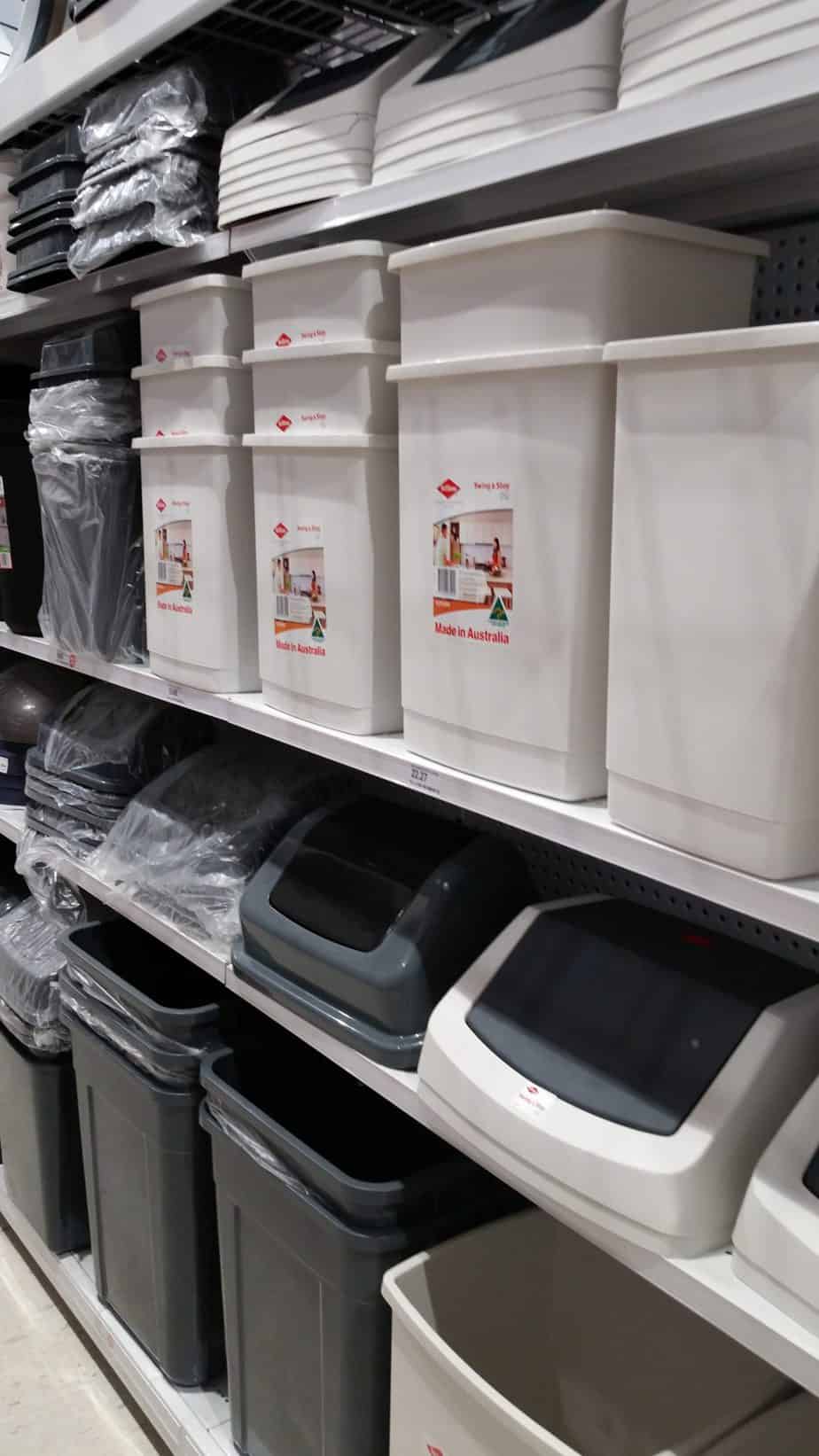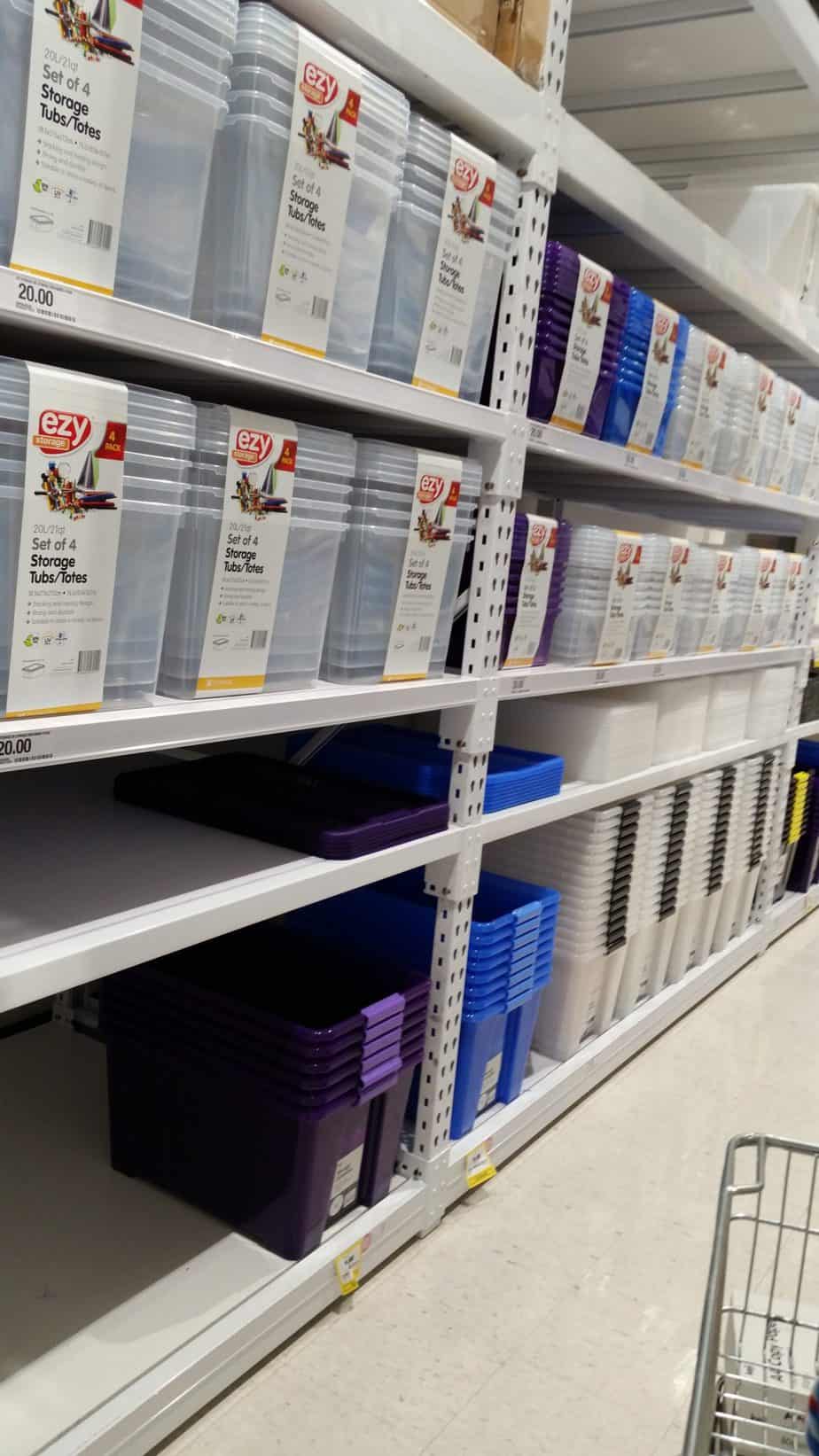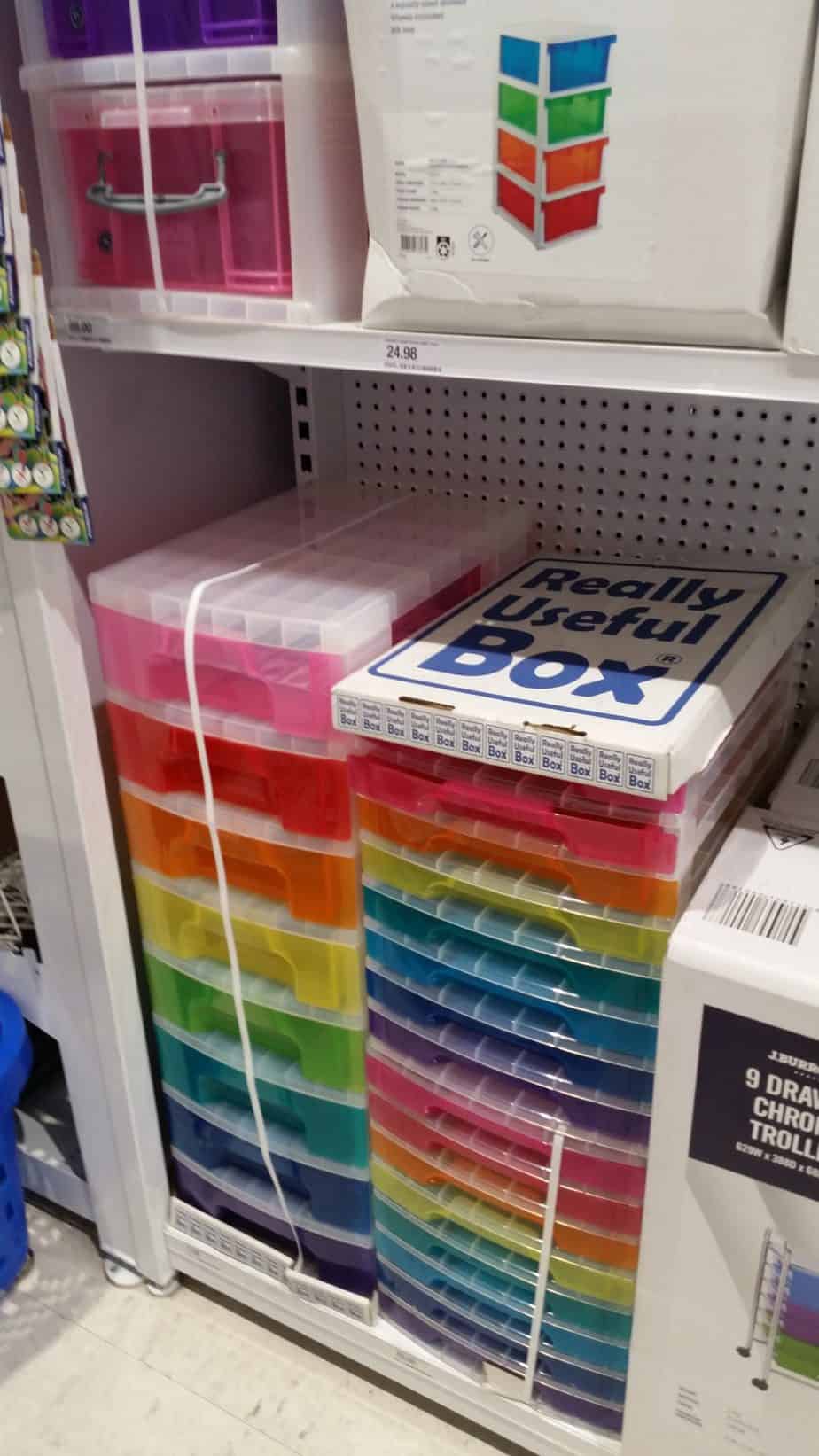Want some ideas to help you setup your homeschool room? Today we’re going to be looking at some simple suggestions that will inspire you to set up a colorful, fun space in which to educate your children. Many supplies, furniture, and stationery items can be picked up at IKEA or Office Works. To complete this article, I had a look at Office Works and photographed items that you might find helpful.
Home educators don’t need a huge layout of money to get started. Many of these items can be sourced second hand through Buy&Swap websites or Facebook Marketplace. You can also source many things buy doing a few DIY projects.
Contents of this article:
- Table and chairs
- Desk setup
- Modular cube bookcase
- Stationary
- Pictures and posters
- Blackboard or whiteboard
- Decorating ideas
- Additions to organize your homeschool room
- Montessori Home Setup
- Setting up a small homeschool room
Throughout the article, I’ve put links to relevant Amazon products. HDIH is a participant in the Amazon Services LLC Associates Program, an affiliate advertising program designed to provide a means for sites to earn advertising fees by advertising and linking to amazon.com.
1. Homeschool Table and Chairs
Getting a good homeschool table and chairs isn’t difficult. Many are hard and plastic or wooden and can be sourced from IKEA or Office Works. (Homeschoolers usually don’t sit in chairs for too long as most only do about 2-3 hours of homework a day.) Many second-hand shops offer cheaper table and chair options for those with a tight budget.
You can also get a more comfortable desk chair with padding for your teenagers who might be putting in a few extra hours as they study for entrepreneurial or college pursuits.
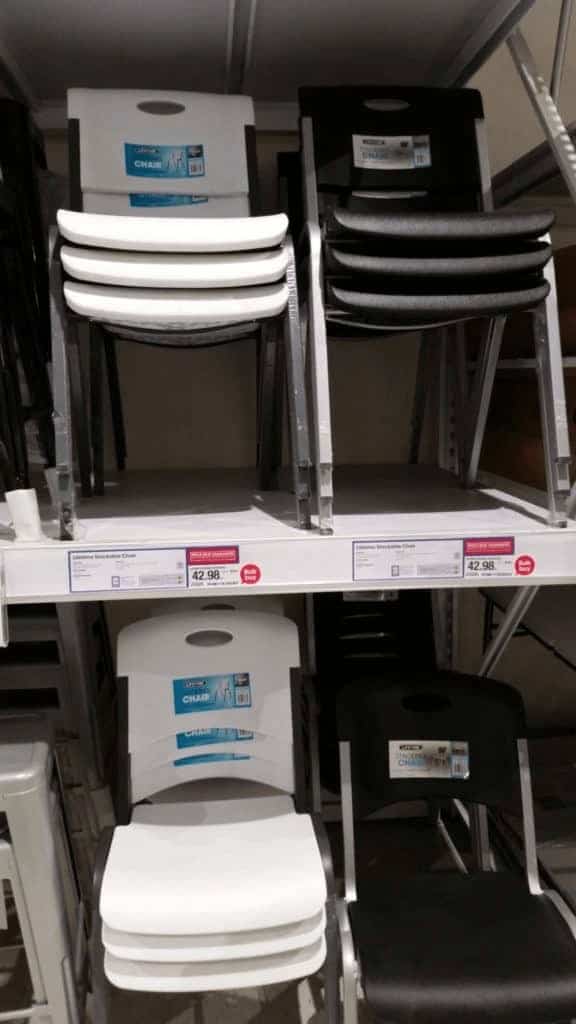
A table and chair set can be useful for doing craft and painting projects. They allow children to spread themselves out and get messy without sullying your dining room table!
For little people, these miniature chairs are a great way to feel comfortable while you work and are a favorite with many small people.
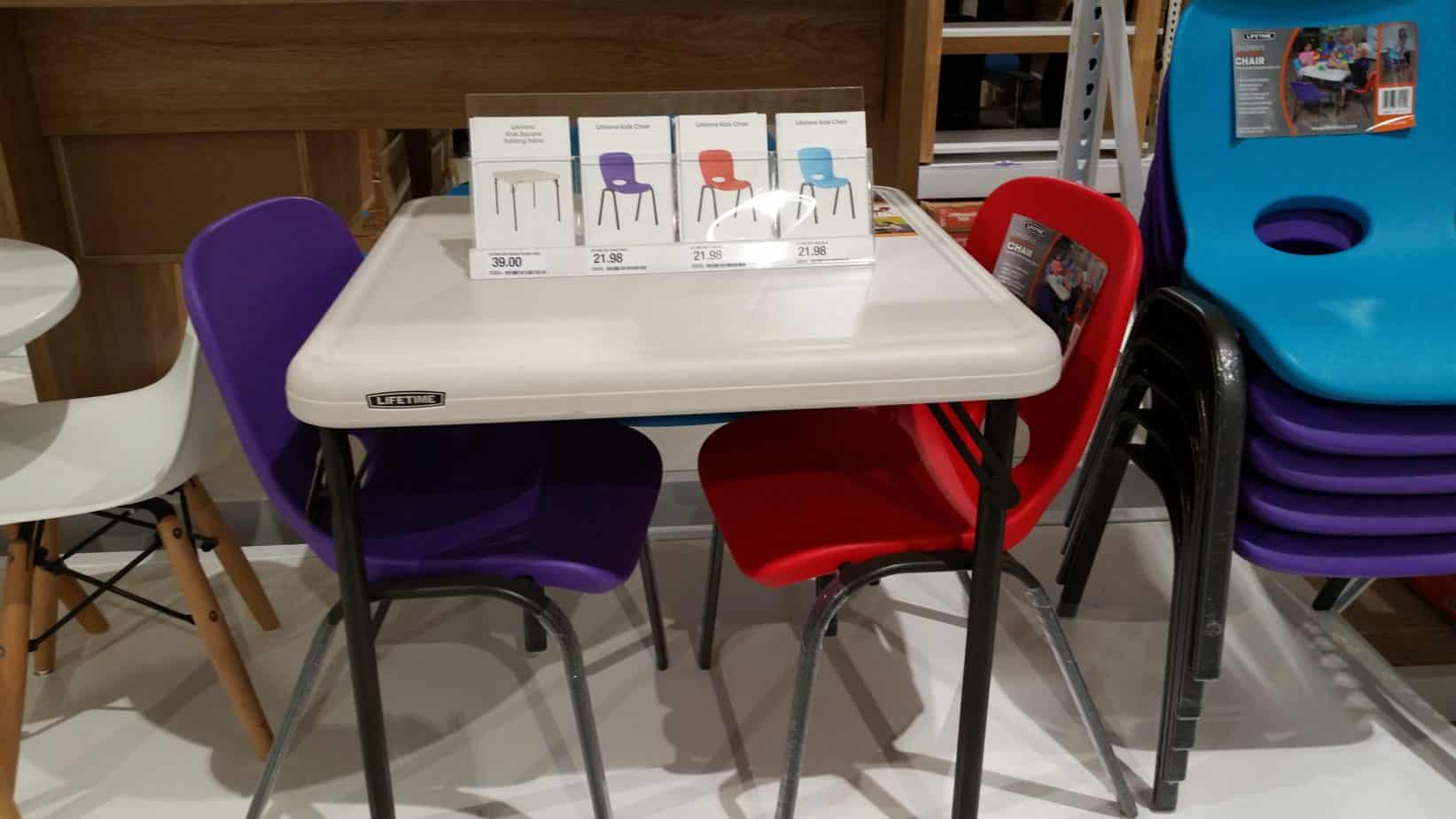
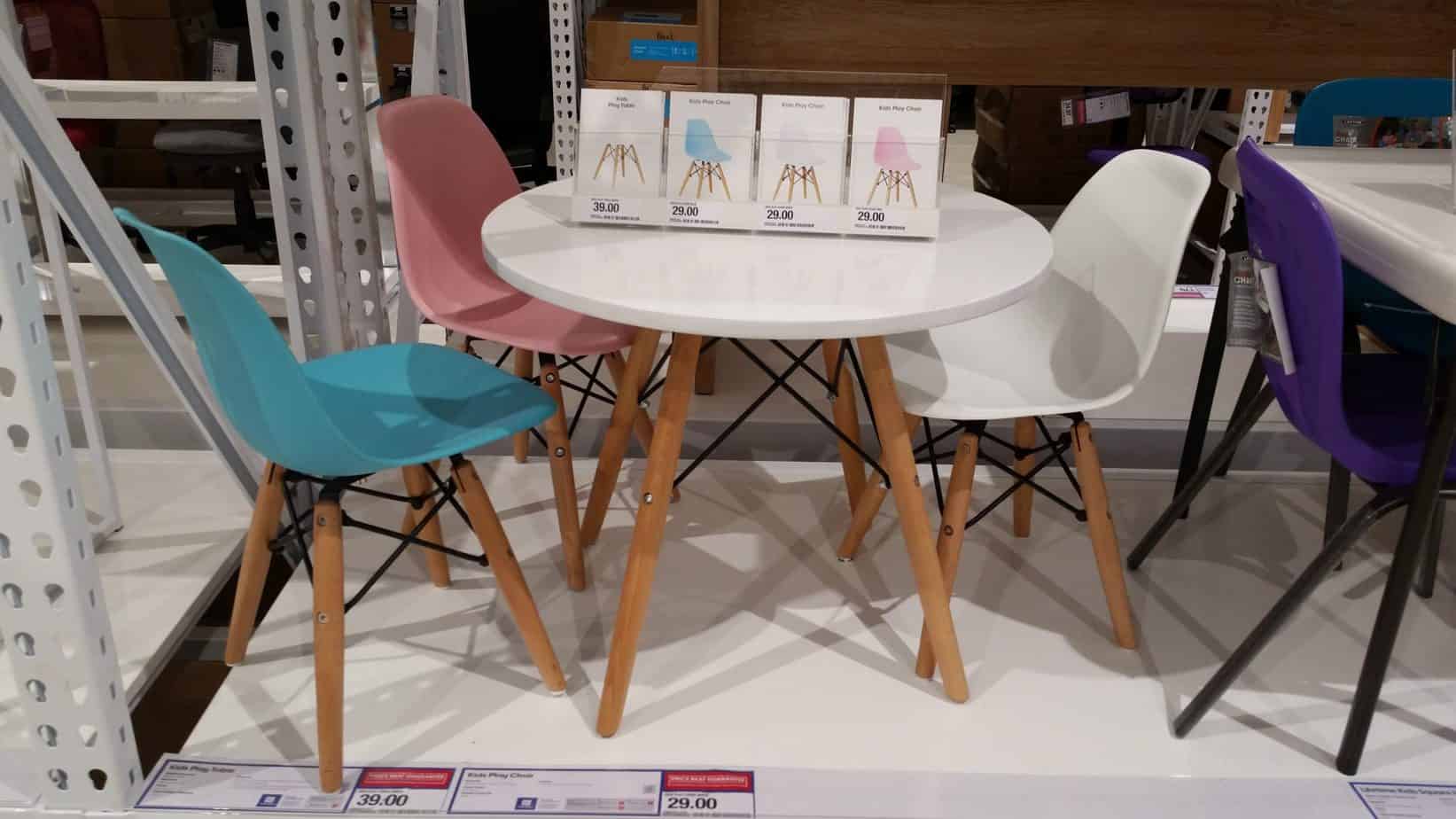
The one below is a folding table and chairs so you have the option of clearing it out of the way when not in use.
If you don’t have a lot of money, children can work at dining room tables. The downside of this is that your house might look permanently messy. But, some mothers might not mind this; some might even like having children close to them in the main living areas as they complete other tasks such as feeding a smaller baby or making dinner in the kitchen.
2. Homeschool Desk Setup
Another great furniture item for your homeschool room is a desk. Desks are particularly useful for high schoolers as they can open multiple books on the same slab of timber without having to balance them or overlap them.
Students can also store their stationary in drawers which allows easy access and reduces interruptions from having to get up out of their chair and access stationery elsewhere. Some children who are easily distracted might benefit from having a desk that faces the wall for less visual stimulation that a window might offer.
A homeschool desk from IKEA or Amazon is a simple option that parents can purchase straight away. Another option children might want to participate in is a DIY homeschool desk using reclaimed lumber from your local recycling centre.
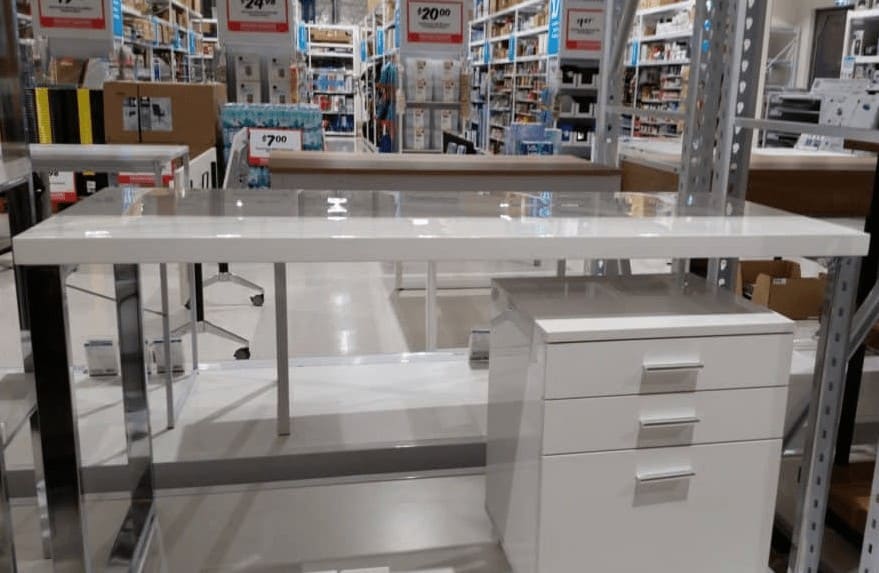
Or you could make it a bit fancier by doing a DIY homeschool desk like the one below…all you have to do is plonk a bookcase on your desk and you’re done!
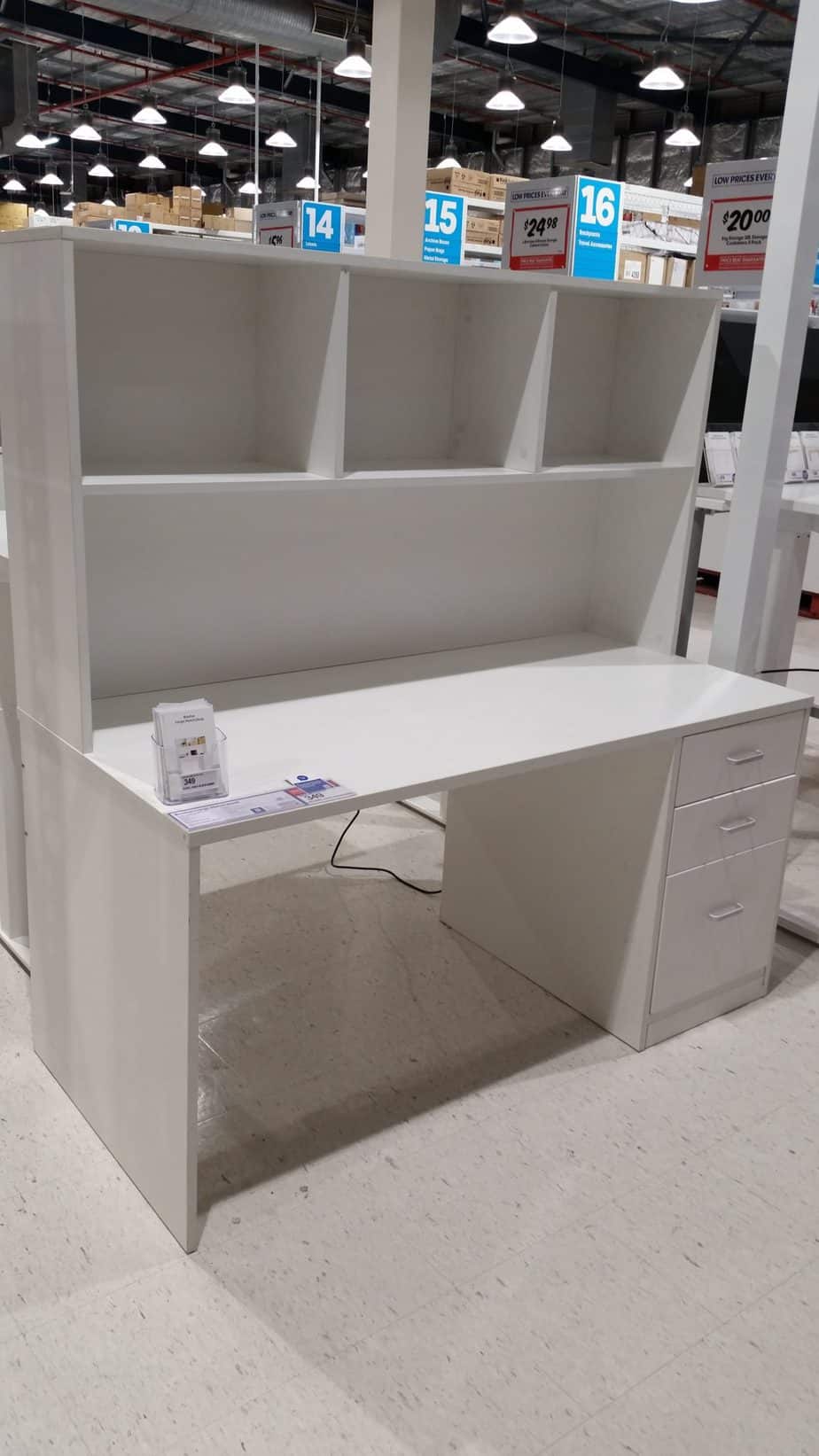
For homeschooling rooms that accommodate more than one child, consider setting up an L-shaped desk that can fit more than one child in a small space. This way you’ll be able to add other furniture and storage supplies into your small homeschool room space or just have more space to move around in larger areas.
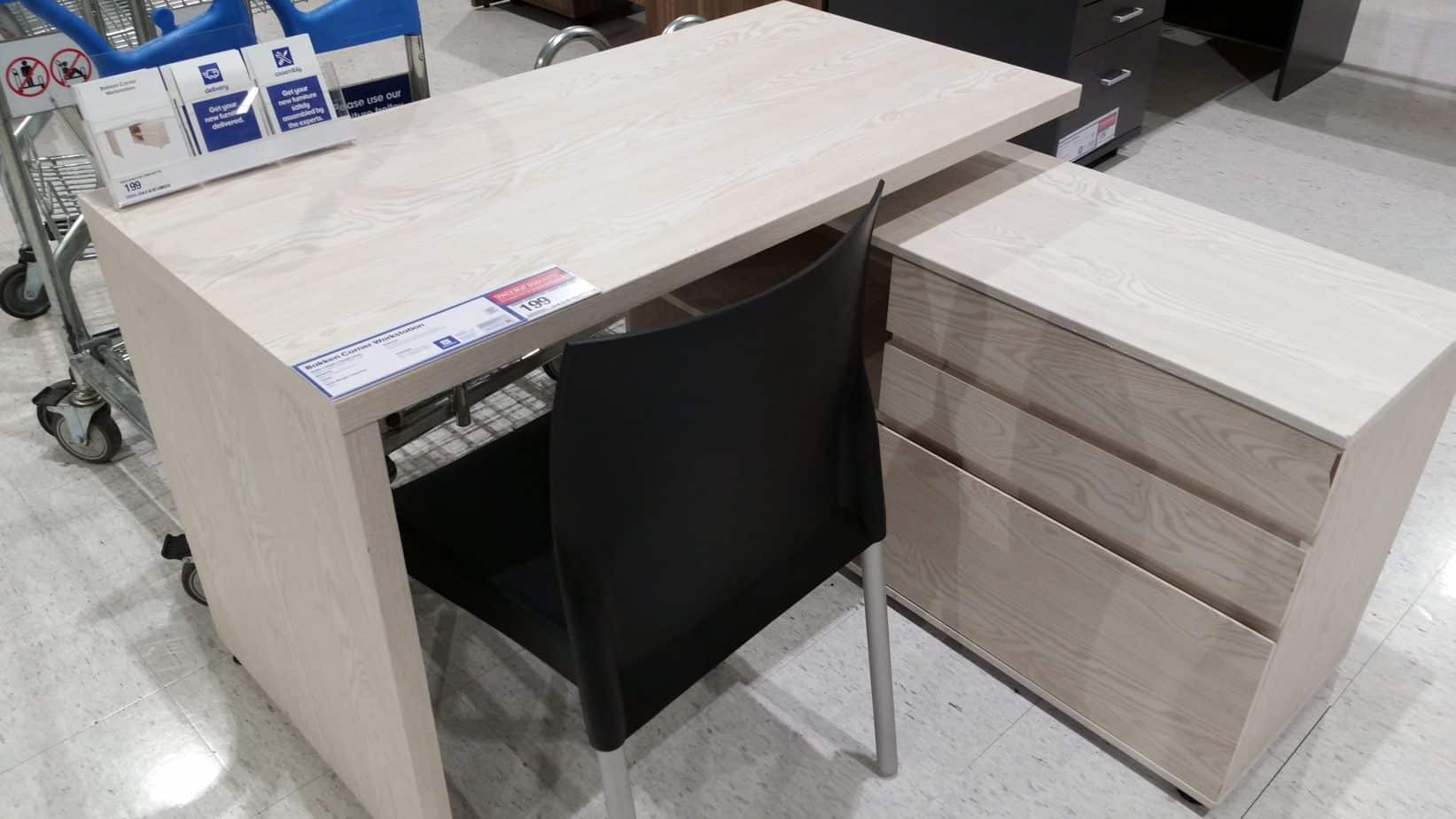
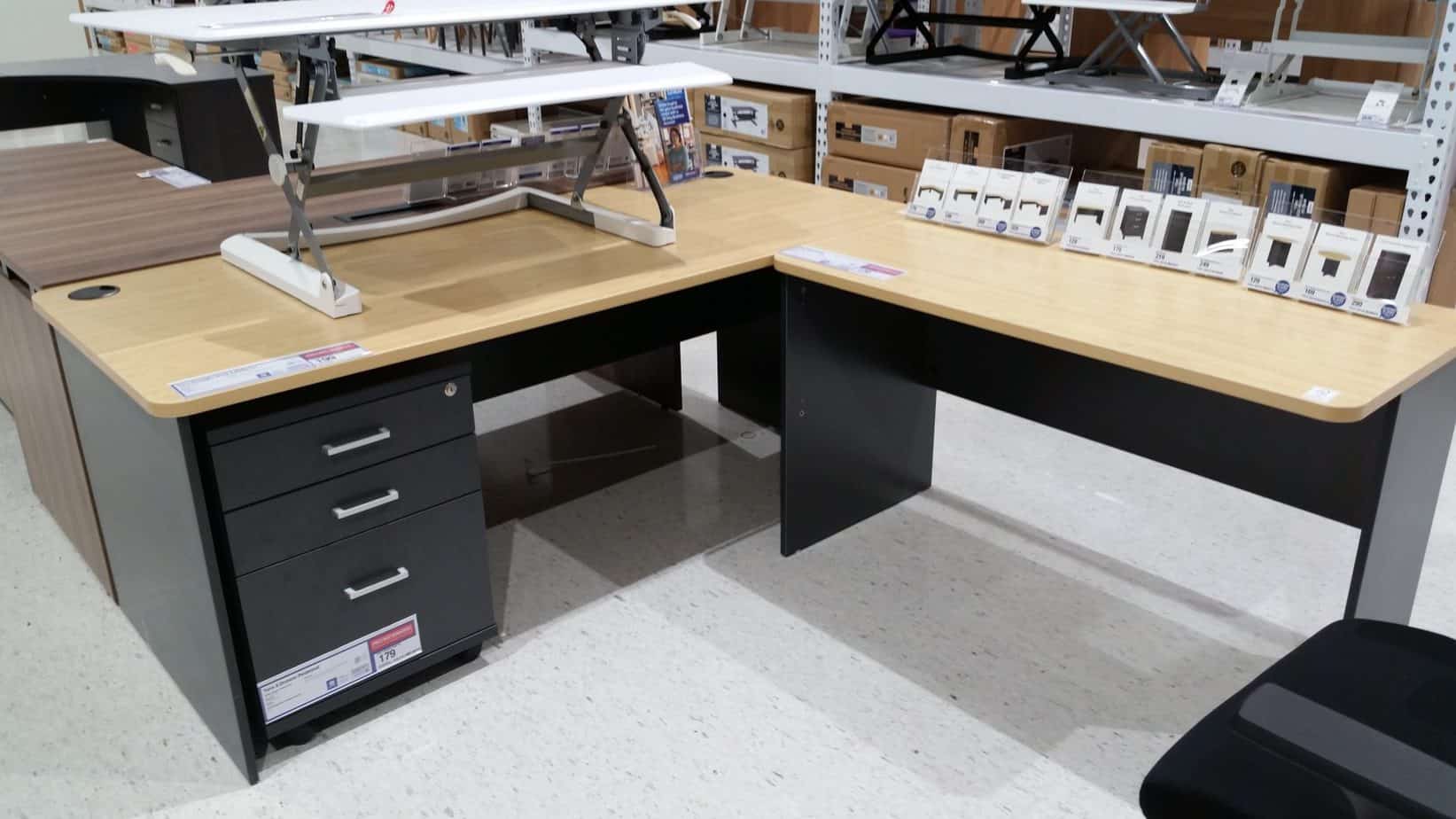
3. Modular Cube Bookcase for a Homeschool Room
Bookcases are great homeschool furniture ideas as most home educated students are avid readers and well-above-average in this department. Consequently, most homeschools contain many books which can be housed in a modular or horizontal bookcase.
If they’re on top of the desk, make sure they are secured appropriately and are not a falling risk.
Modular cube bookcases are especially popular these days as they can double as a bookcase or a loose item holder. Parents can purchase specially made plastic or fabric boxes to fit into these spaces which can house small homeschool room supplies like loose stationery.
The modular bookcases below are from Office Works and IKEA and Amazon have similar options:
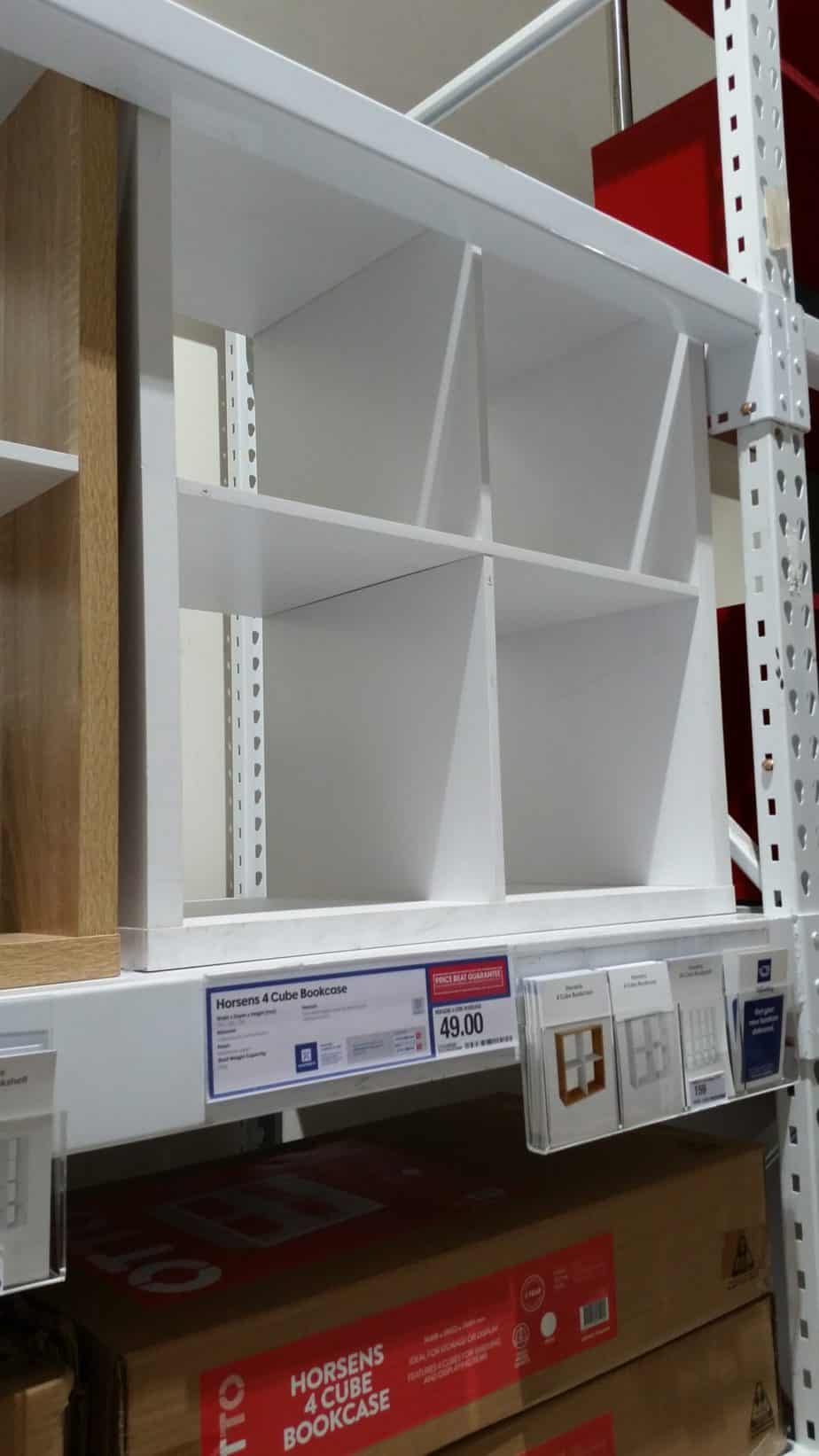
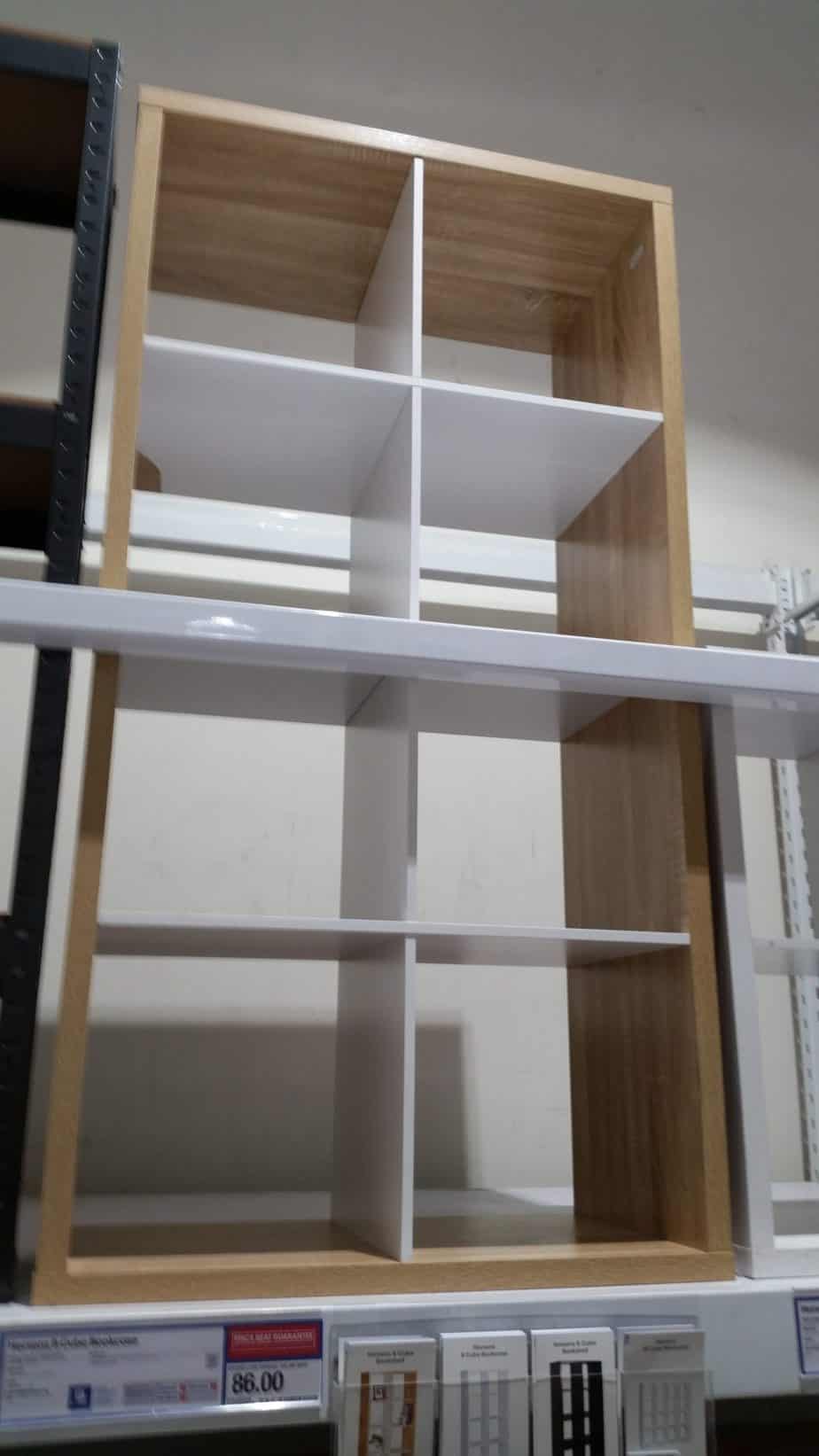
4. Stationary for your Homeschool Room
Neatly contained homeschooling room supplies inspire learners and educators alike. Without appropriate storage options, stationery supplies can get messy and disorganized.
A good way to get around this is to purchase mess and space-minimizing stationary holders for all your loose pens, pencils, and papers. Pencil cases are a great option for escaping pens and pencils while document holders will hold curriculum workbooks and extra paper for writing or craft purposes.
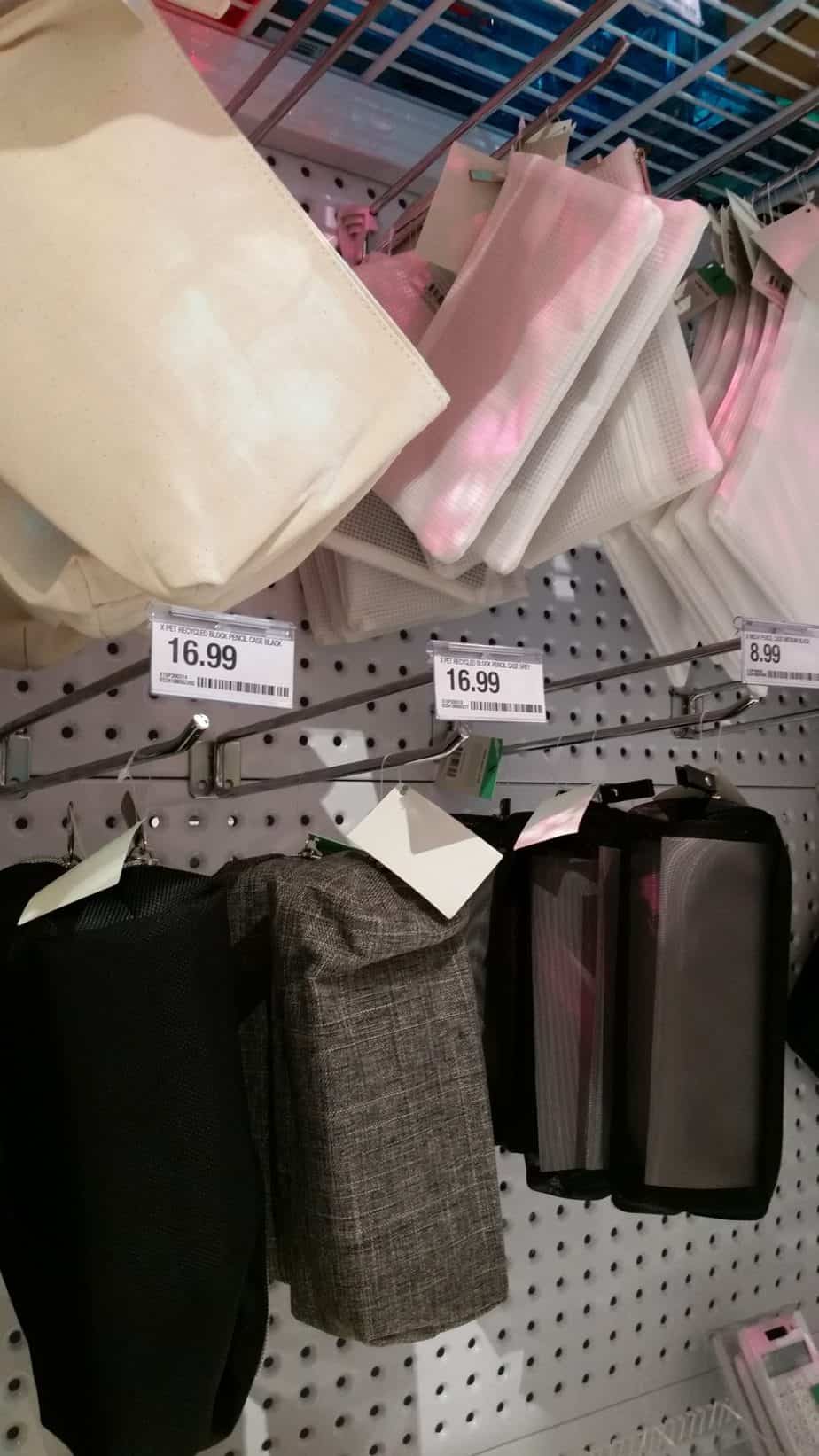
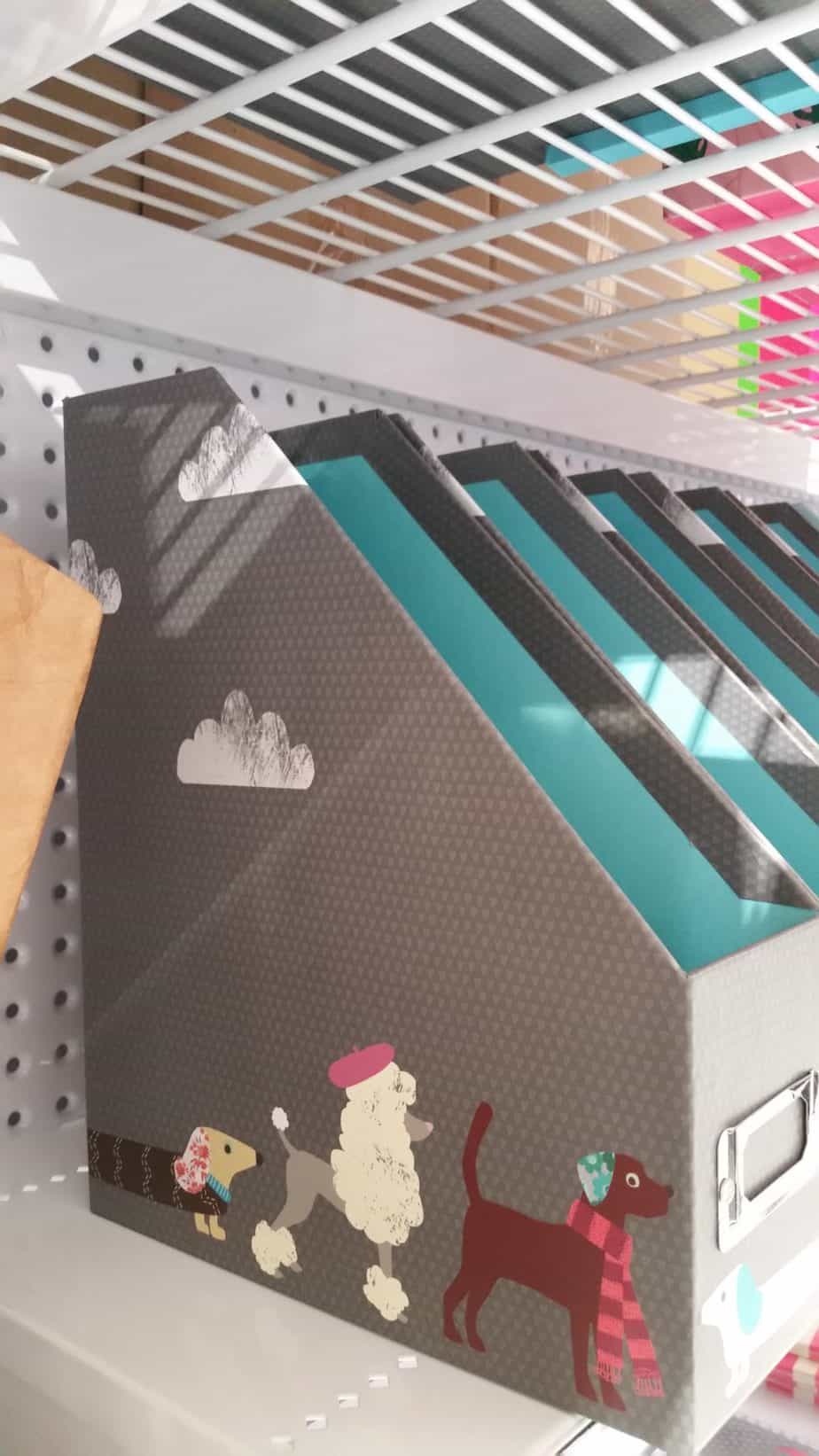
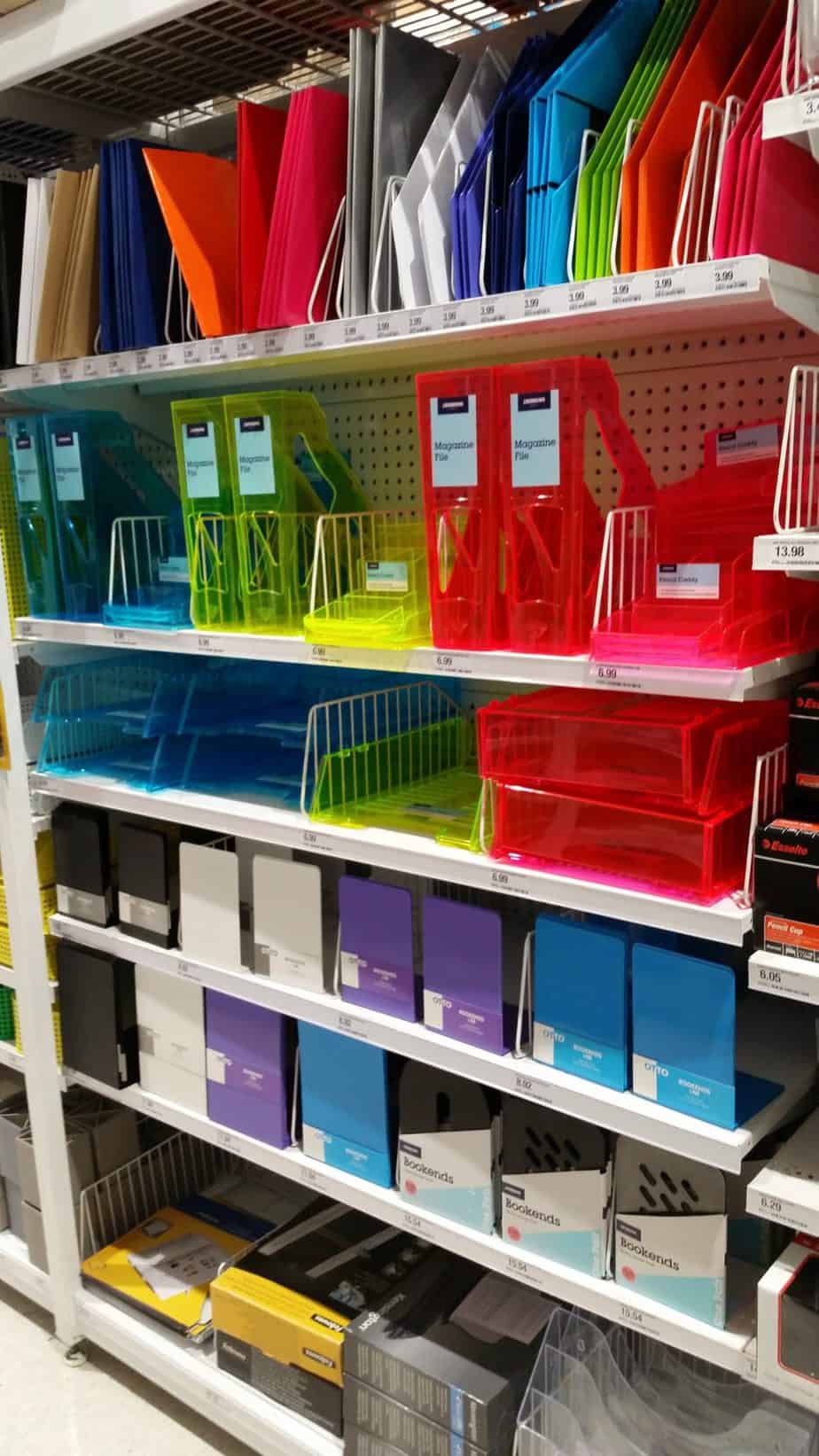
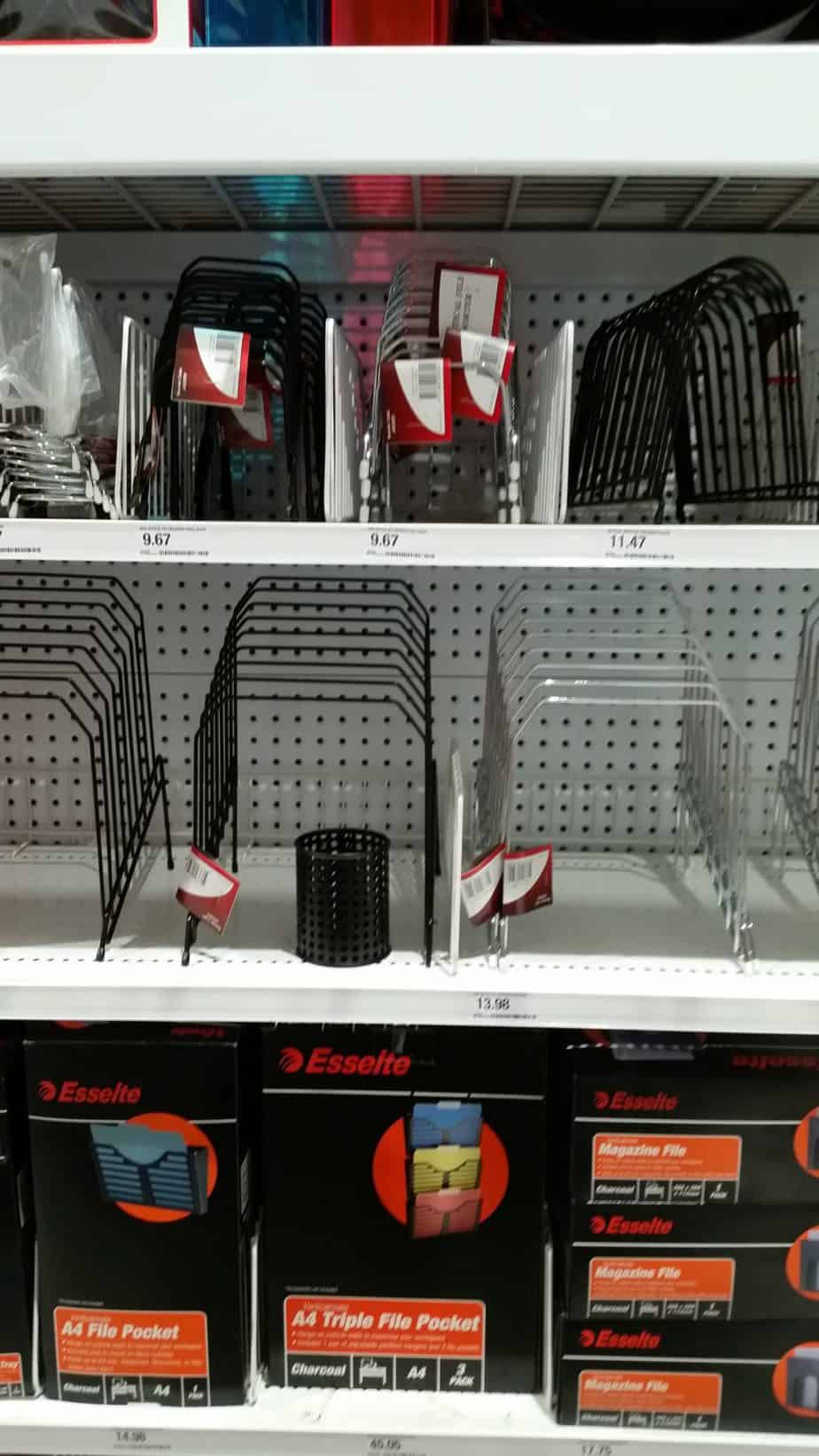
Don’t forget to get some clipboards too. These will be useful when you go on nature walks.
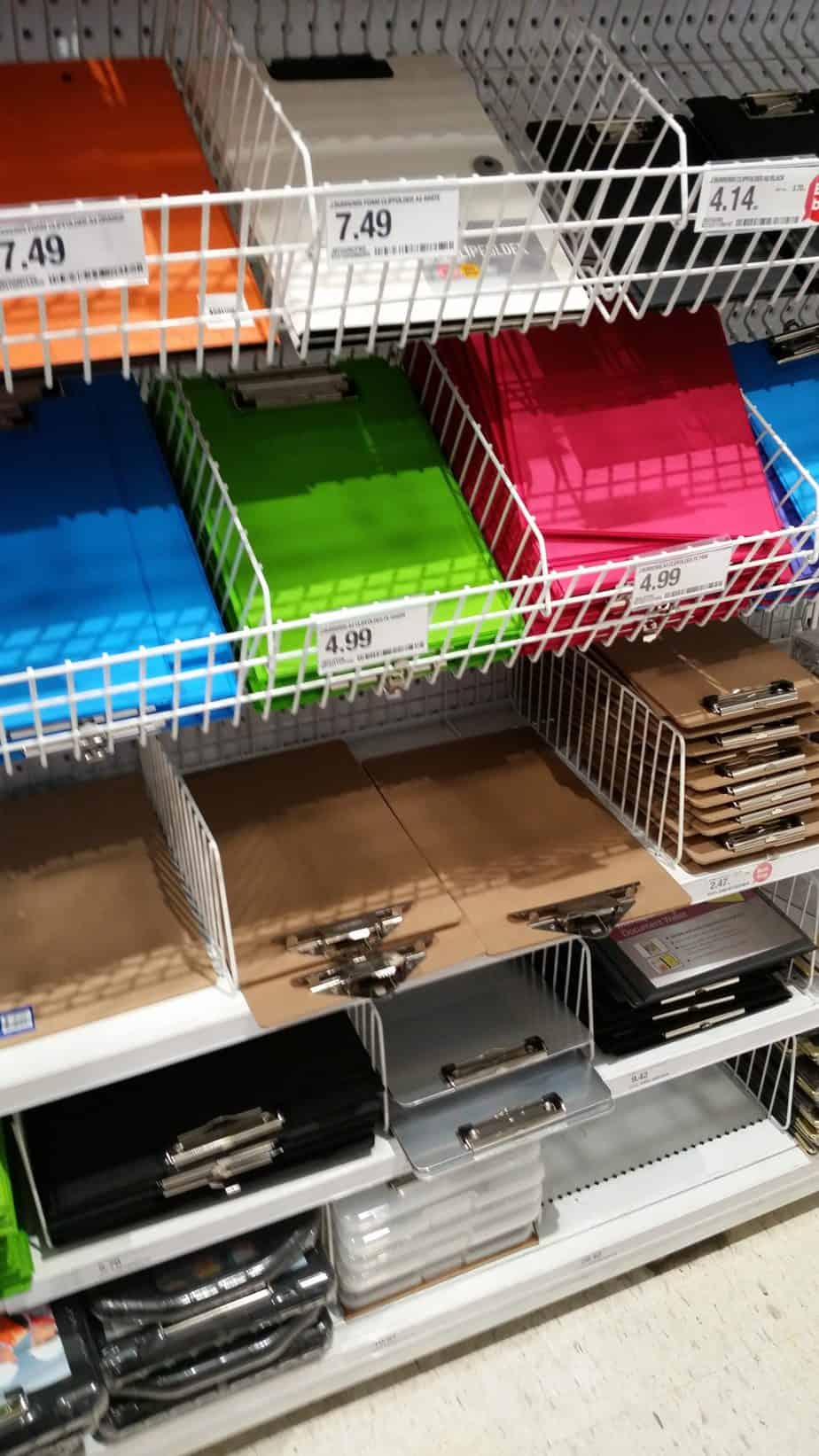
Organization in a homeschool room is important, otherwise, things get frustrating, not to mention messy. Sarah from FrugalFun4Boys said:
This sounds silly, but… make sure everything has a place. Otherwise, it will not be put away. This has taken me a long time to learn! Scissors, tape, glue, pencils – they all need designated homes in your school space.
So make sure your room is organized neatly.
Stationary for Your Homeschool Room
You’ll need some simple stationery to get you started. Except for having to get name labels for every rubber and pencil, you don’t want to go missing, the supplies you’ll need are similar to the ‘back-to-school’ items most parents purchase. These include:
- pens,
- paper,
- a stapler with staples,
- a box or two of printer paper,
- blank paper books to do drawings,
- lined paper books for essay-writing,
- texters, pencils, markers, crayons,
- sharpeners,
- scissors, and
- post-it-notes
There’s a lot more, but these are most of the basics.
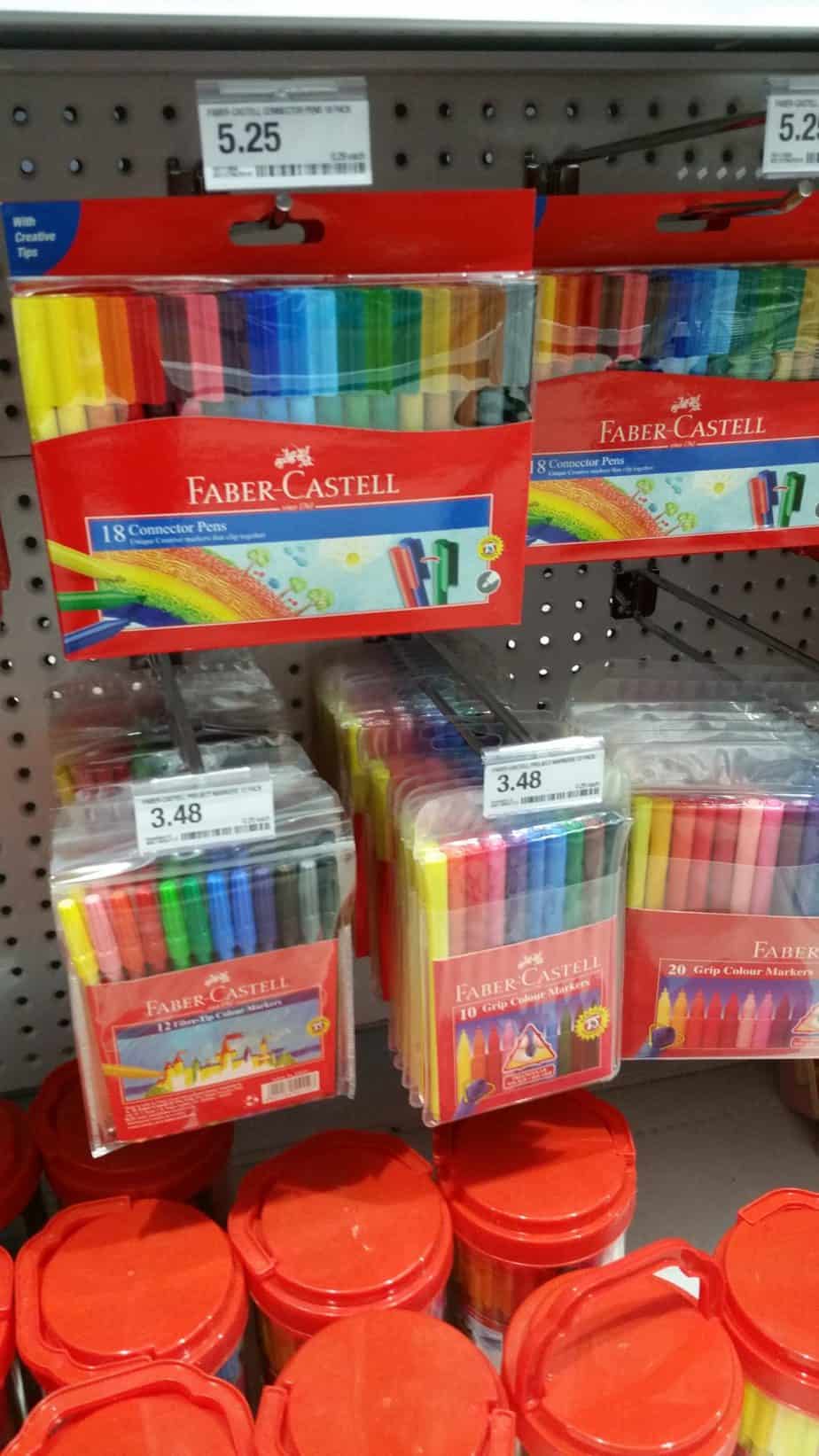
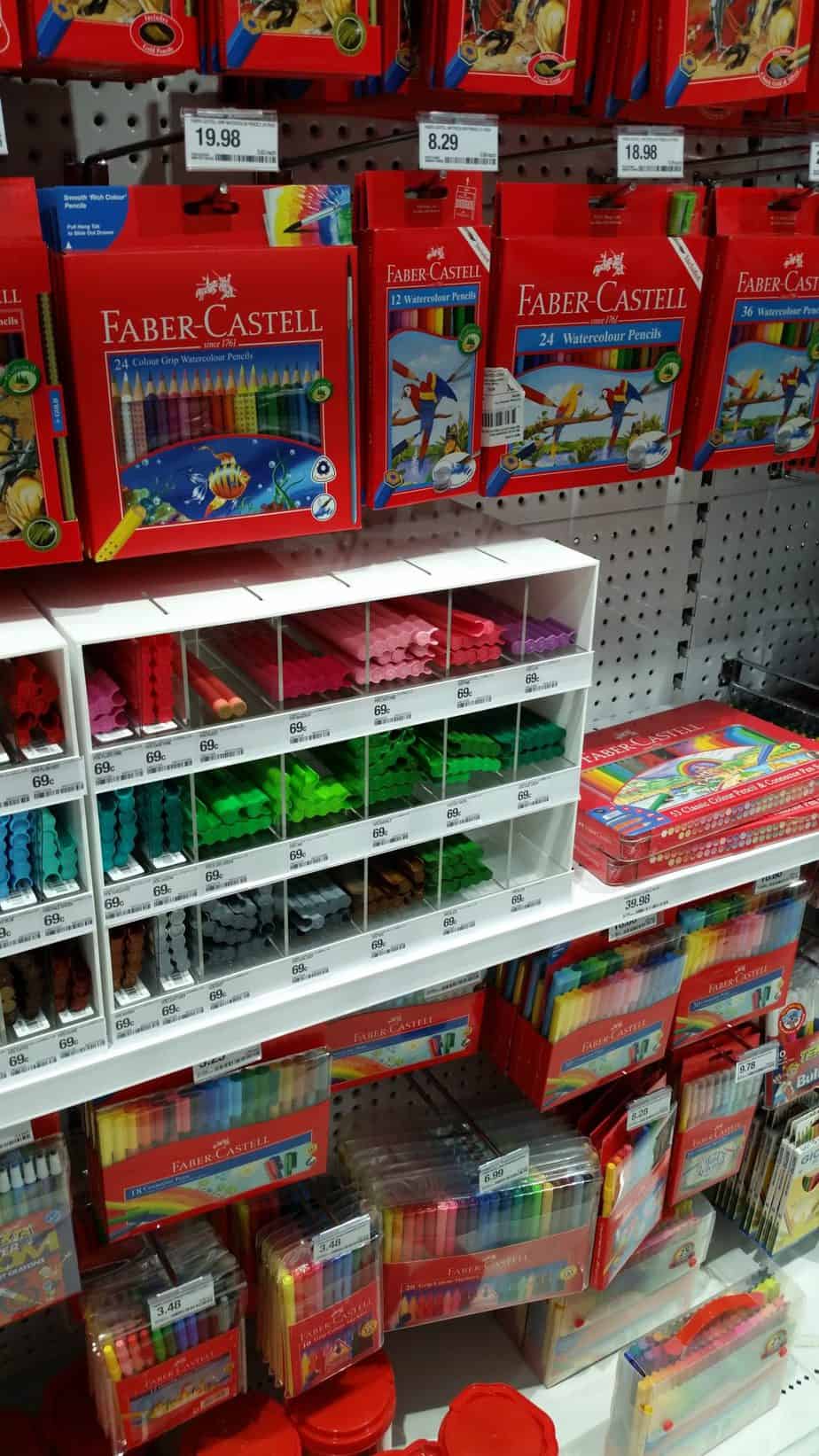
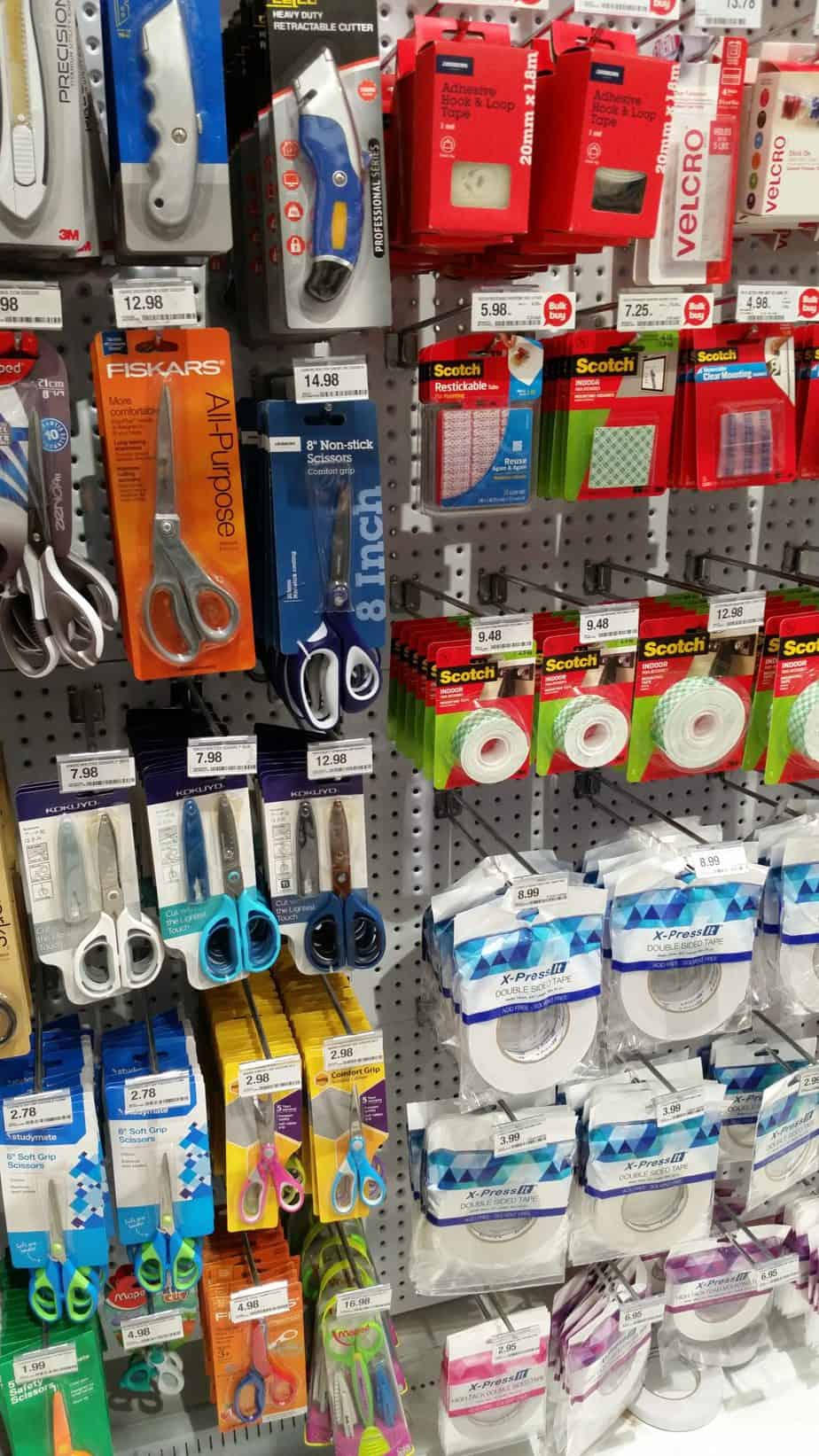
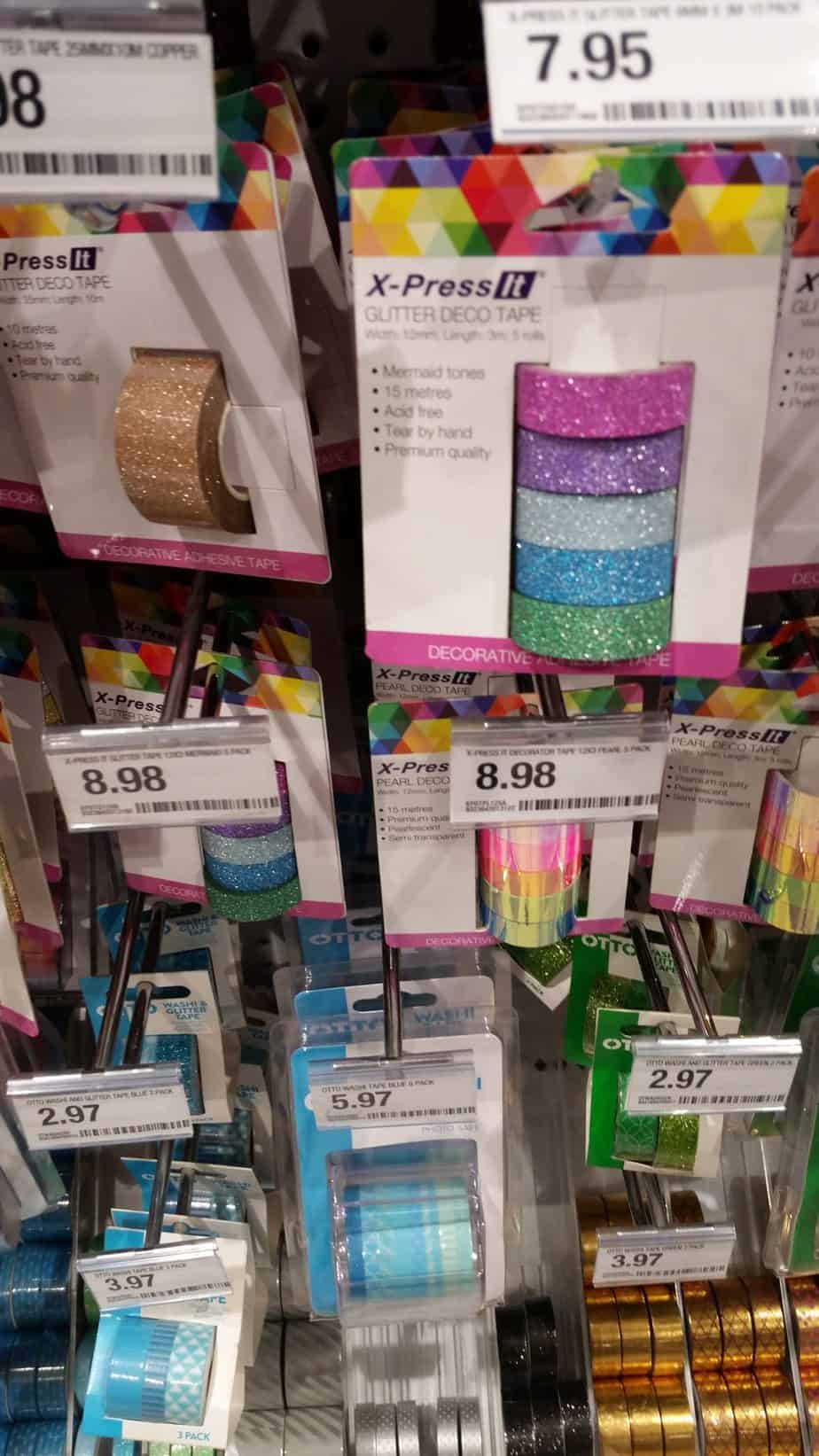
Technology for your Homeschool Room
Laptop and a Laptop Bag
In this day and age, it’s wise to buy your kids a laptop to use in common areas, as they’ll need to be doing research on it for various homeschooling projects. A laptop is a great idea if you want to record things as you go on excursions and field trips.
A laptop has the advantage of portability, but a desktop will last longer as children won’t ruin the unit by moving its hard drive while it’s operating.
A Warning about Technology in the Bedrooms: I would think twice about allowing your children to take technology in their room alone. Keep the laptop in communal areas. It’s easier to get tempted to look at things you shouldn’t be looking at if you’re in your room alone than it is if you have a computer in a communal space.
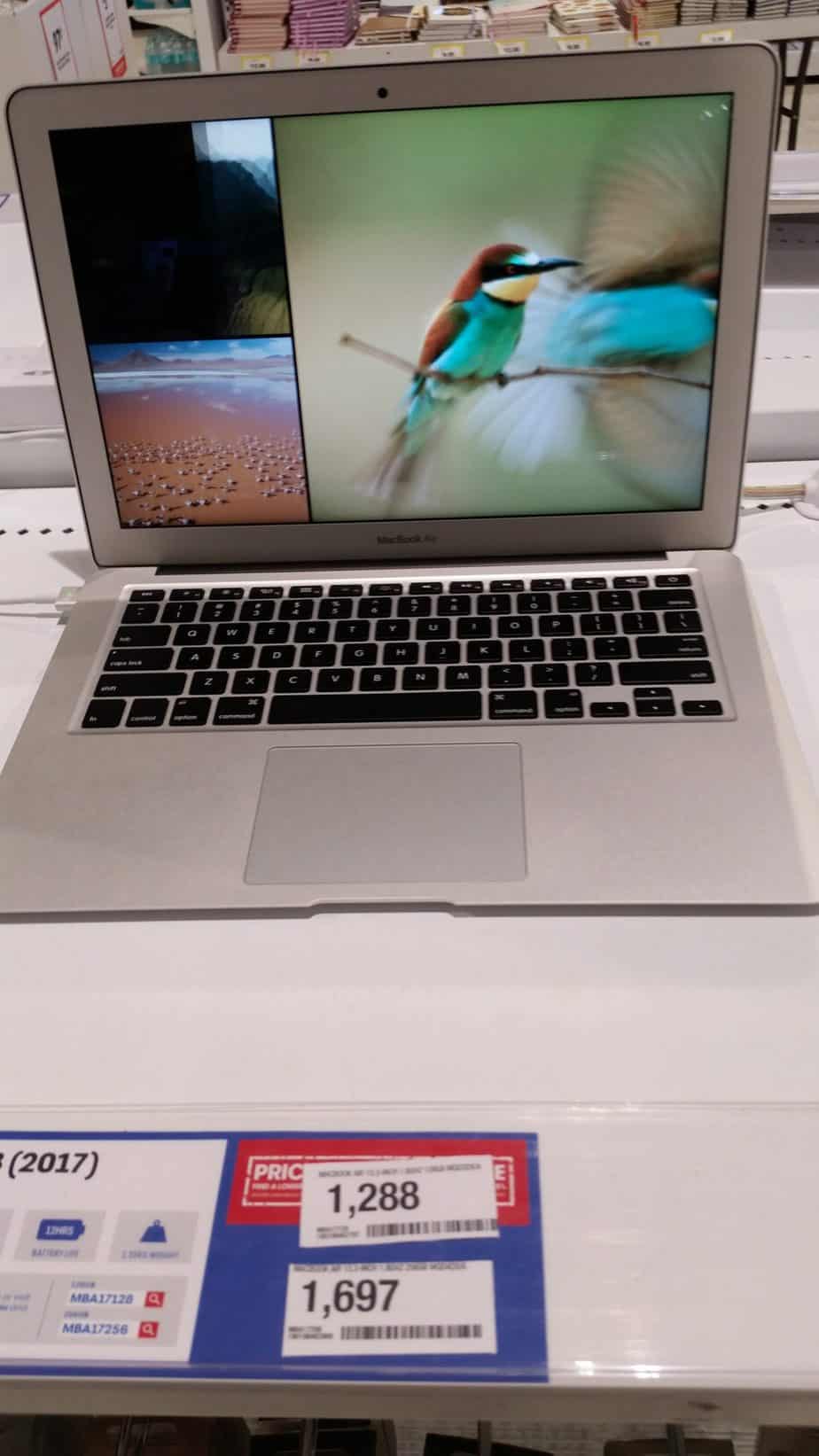
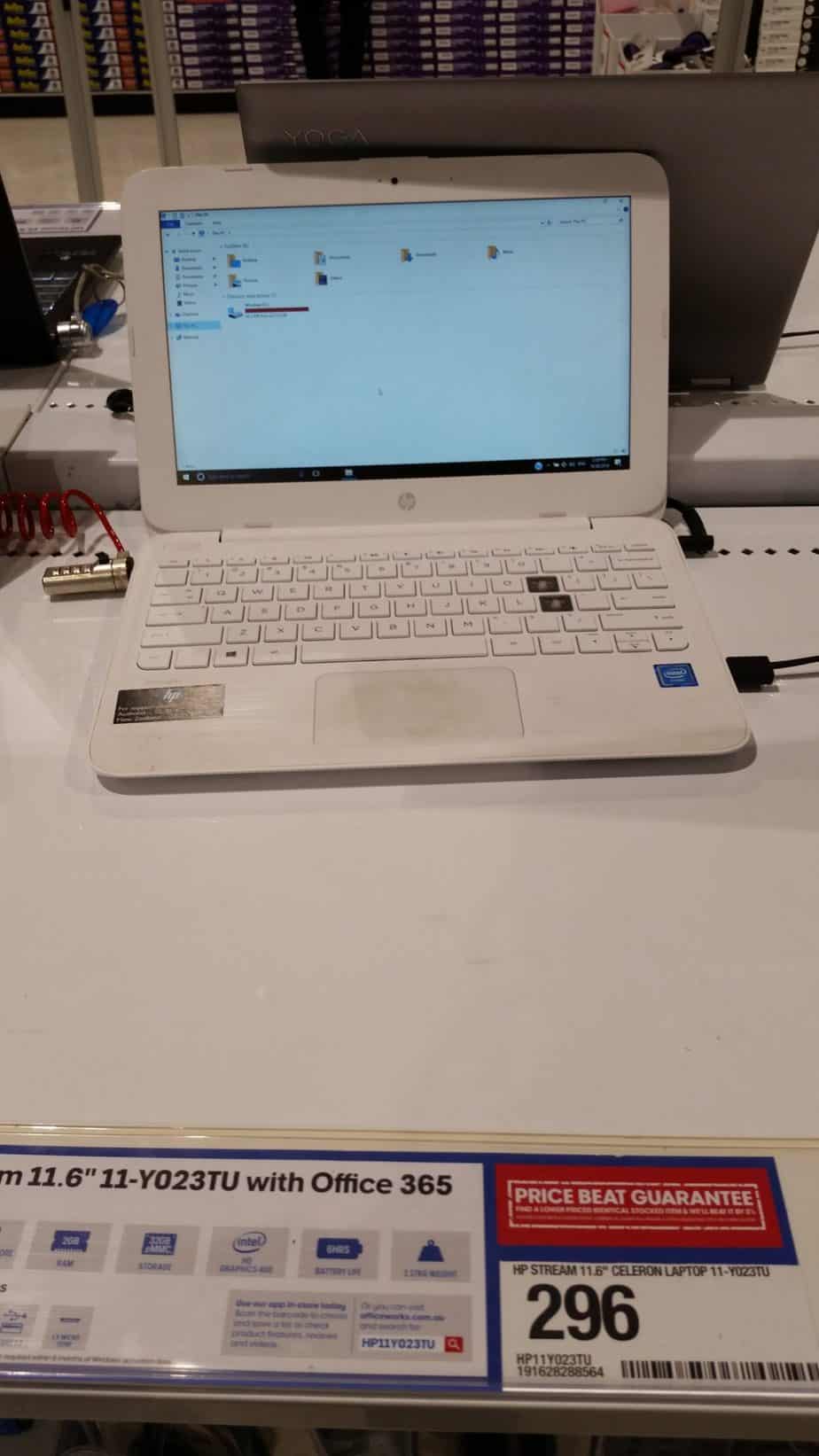
As you can see, some of the cheaper laptop options are as little as a couple of hundred dollars, while the pricier laptops can set you back almost $2,000. If you’re the sort of homeschool family that likes to go places, you should consider purchasing a decent bag to carry your notebook, Kindle or iPad.
iPad or Galaxy Tablet
An iPad is a good compromise if you don’t want to buy a big, expensive laptop. It can be a great idea to take them on excursions and nature walks as they’re not ruined if children use them while moving.
Unlike a laptop, an iPad or tablet can be kept clean easily, and some even come with waterproof cases in the event your child is prone to little accidents.
As far as price goes, a Galaxy tablet is much cheaper than an iPad. Both will do the same job, although an iPad might be better in some areas. You can compare the prices in the two Amazon boxes below. One shows different iPad options, while the other shows Galaxy tablet options.
A Kindle
If you have a small homeschool space like a dining room, a Kindle is a great way to reduce the clutter of books contaminating every flat surface. You can purchase a Kindle for every child or buy just one. One limitation of buying a single Kindle is that if you have multiple kids who want to read at the same time (i.e. during independent reading time), you might struggle with being able to share the Kindle around appropriately.
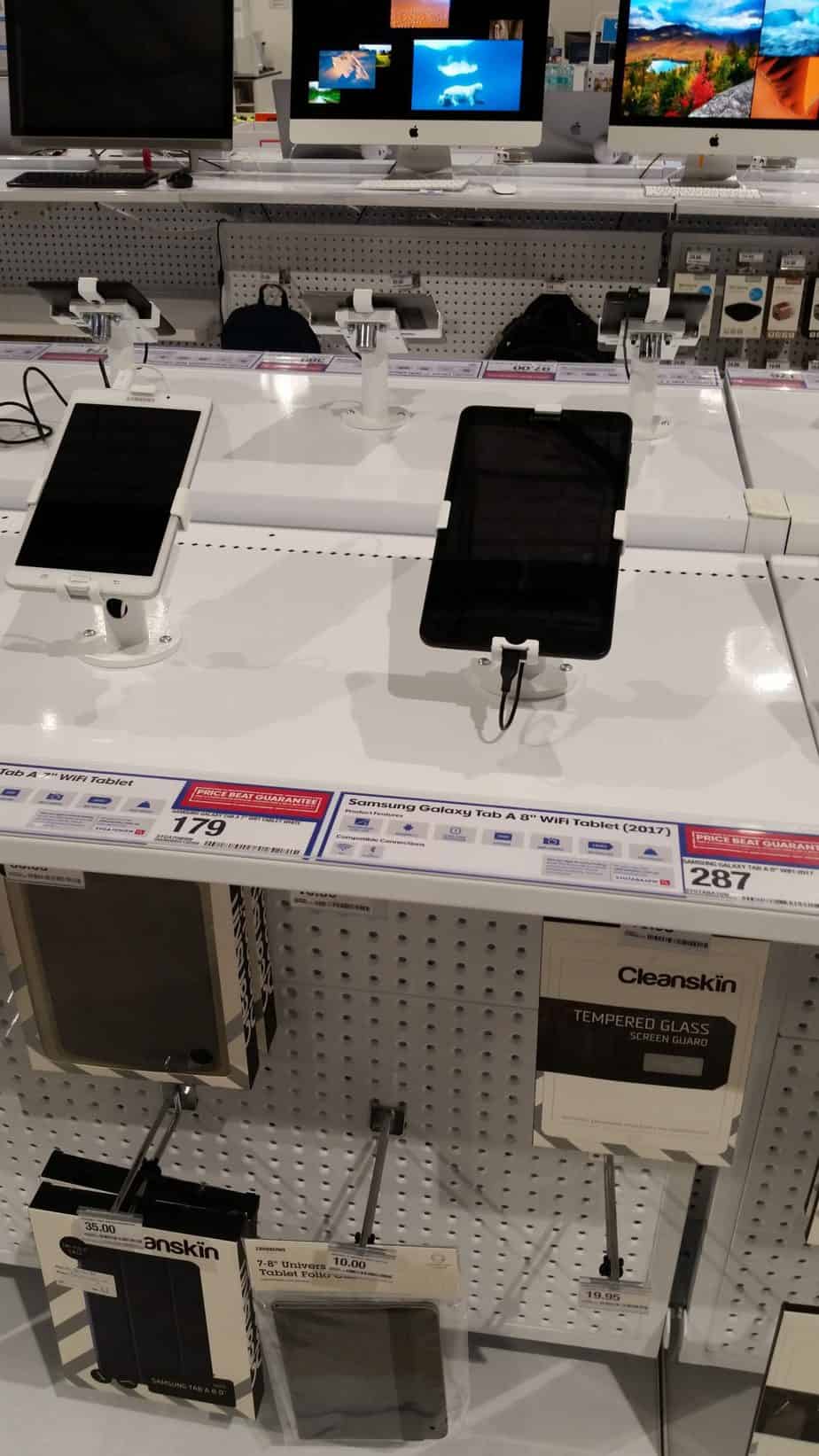
A Printer
If you’re home educating, it’s a great idea to keep a color printer in your homeschool room. I would call a printer an essential these days, especially if you’re using a more eclectic homeschooling style.
A printing unit allows parents to print out notes to save their children from looking at screens constantly. Some parents purchase curricula that can be printed online such as the Easy Peasy and Good and the Beautiful. You’ll need a good color printer if you want to print out curricula in their intended glory.
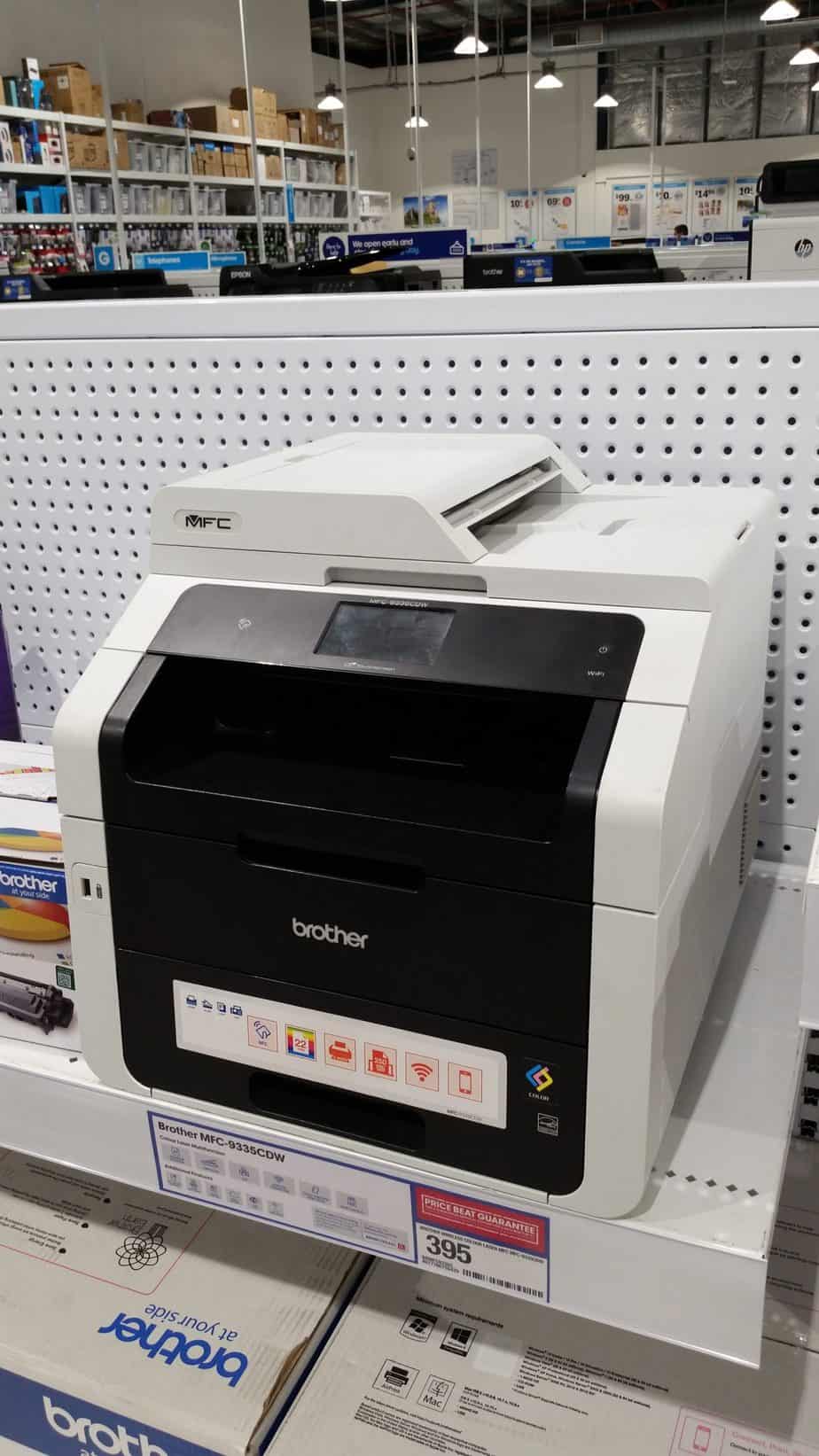
Many printers come with inbuild scanners. If yours doesn’t, make sure you purchase one of these too. They come in handy when children want to reference a page they found in a library book. Laminators are an optional item for parents who wish to preserve certain art items in their original glory.
Another optional purchase is a mobile document scanner like the one below. These allow students to directly print their images from their mobile devices.
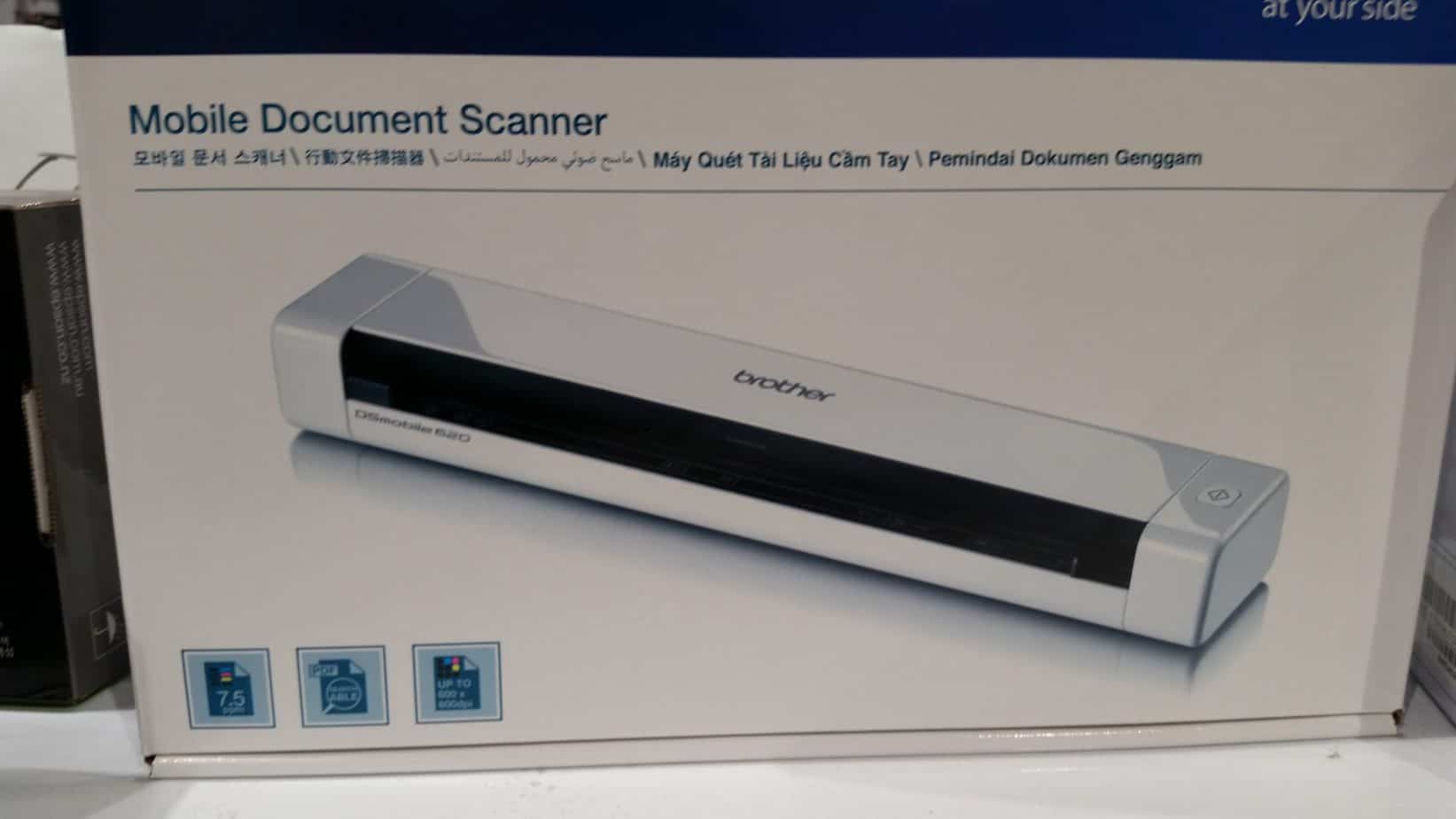
High School Stationary
When students reach high school, their resources list starts to change significantly. They need more complicated accessories, some of which can be borrowed like Bunsen burners and some of which need to be bought due to their frequent usage. Resources homeschooling parents should buy include circular and triangular rulers and angle measures like the one below. These can be purchased inexpensively at Office Works or similar stores. Don’t forget to look out for back-to-school sales.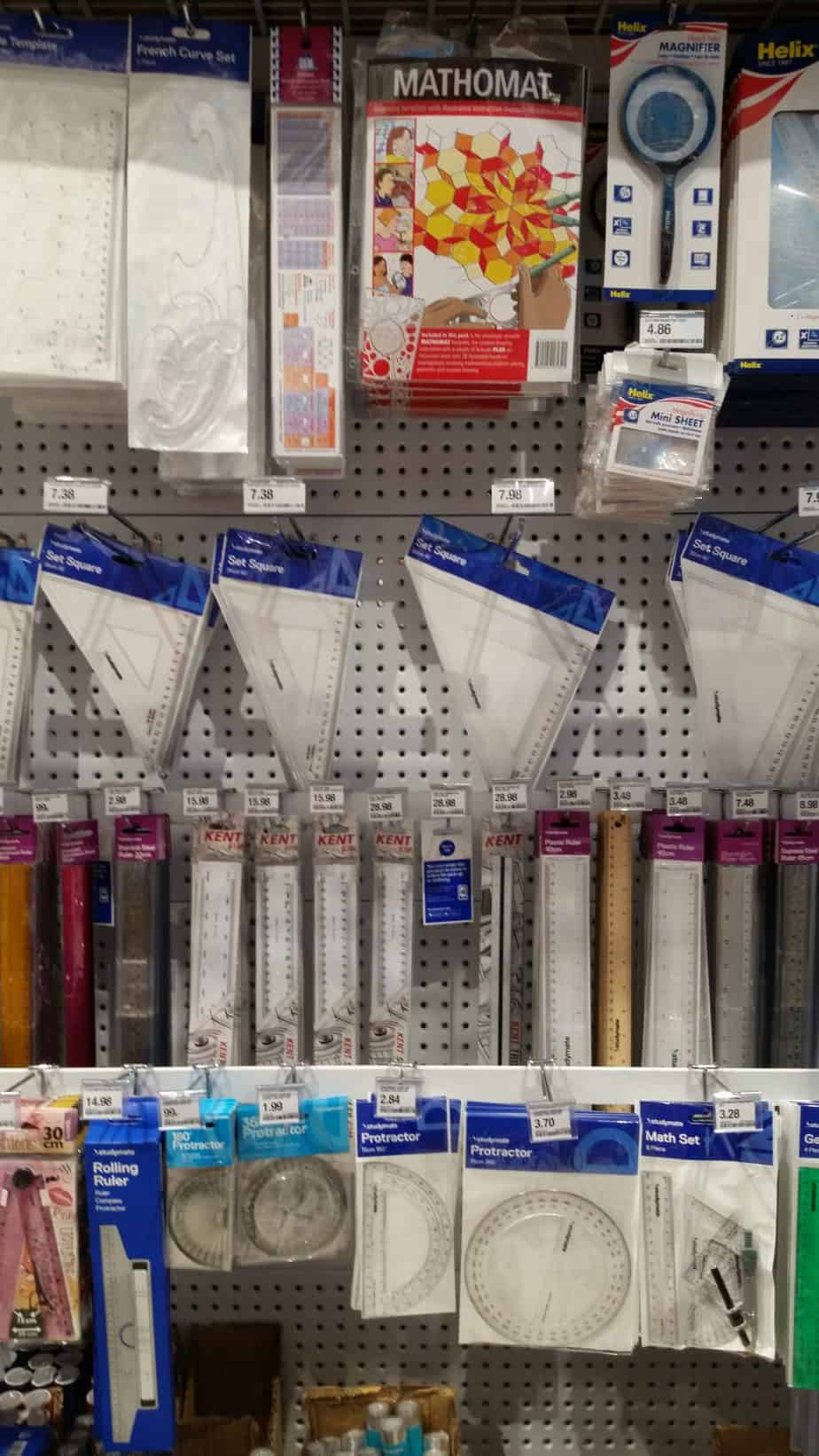
Scientific calculators are also used frequently so they should be purchased. They can be expensive though. To navigate this hurdle, I’ve found many second-hand stores carry scientific calculators for a reasonable price.
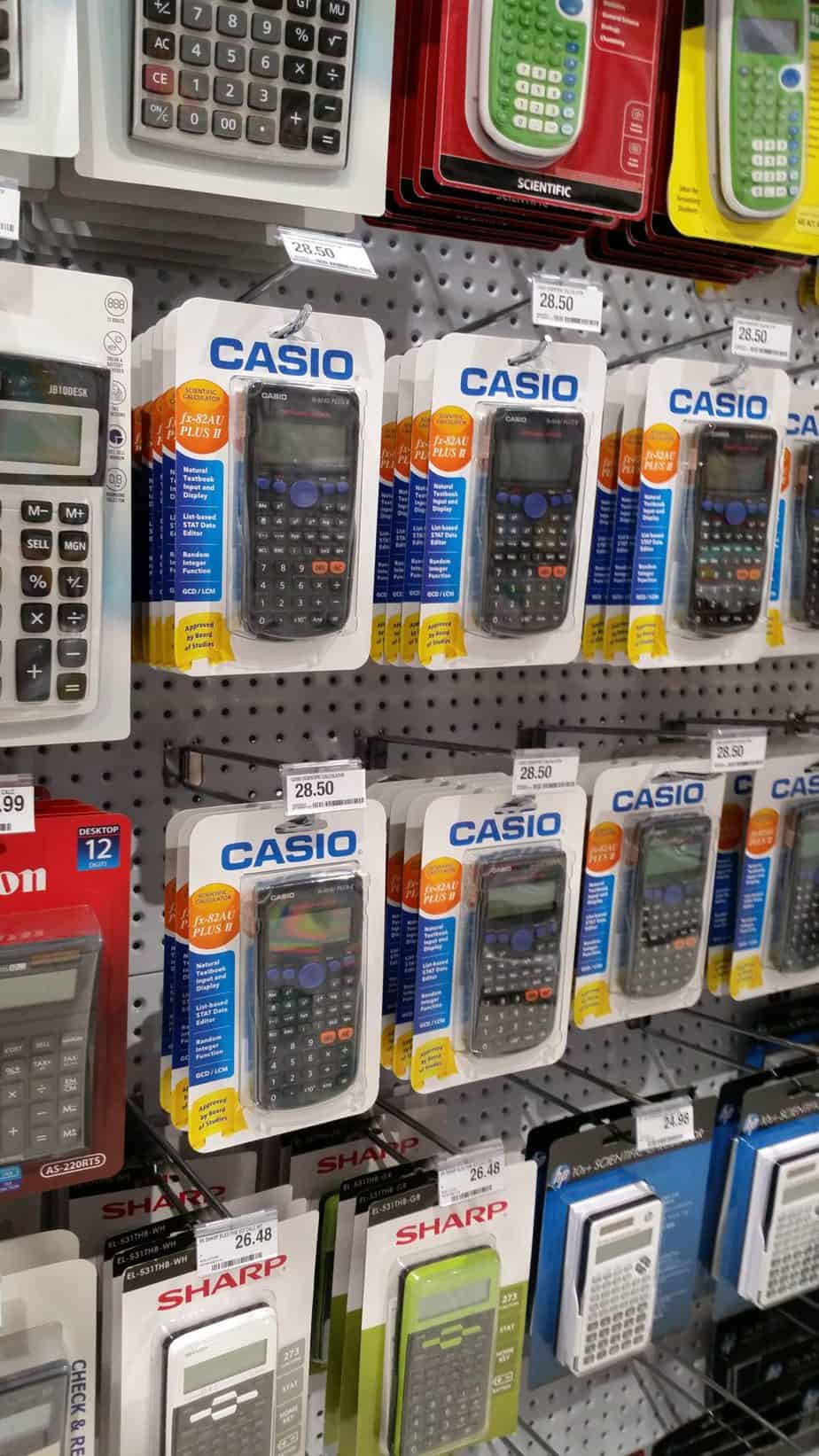
High school-aged students also need:
- highlighters
- loose leaf hole paper
- tabbed dividers
- a weekly planner if this isn’t on their phone
- ring binders and
- a USB flash drive.
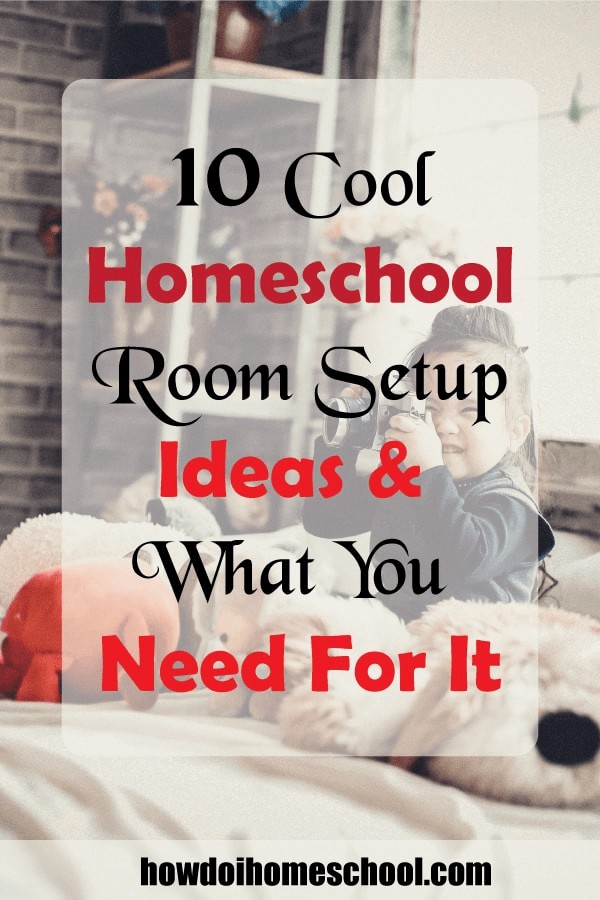
5. Homeschool Classroom Pictures
Hanging pictures and putting artwork graphics up on the walls can be a great way to make your classroom bright and inviting. But, why not make it educational too?
Putting bright mathematics graphics on the wall can help to motivate your homeschoolers and inspire them to learn their arithmetic. Some samples of times table and multiplication graphics I found from Office Works are below.
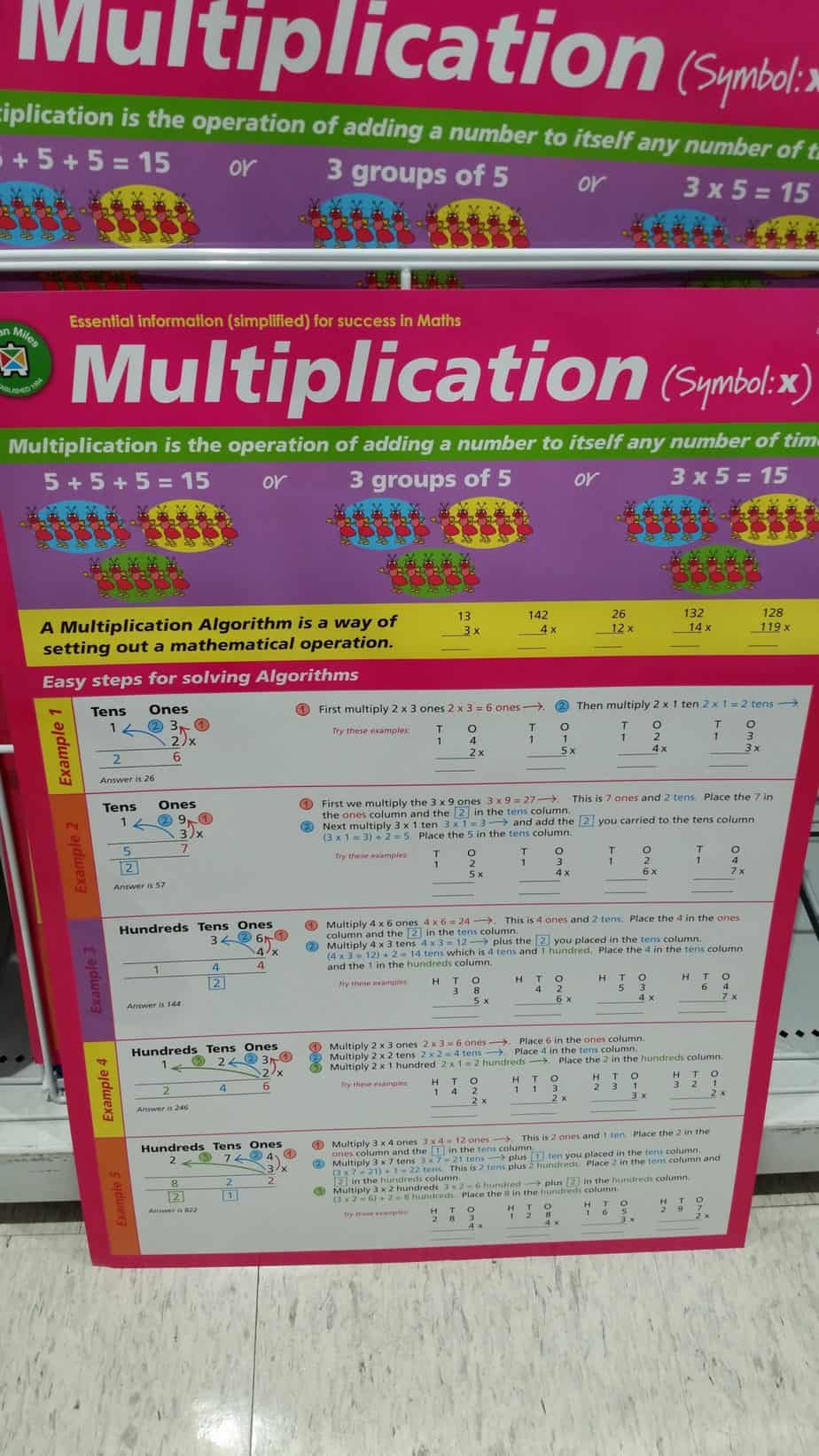
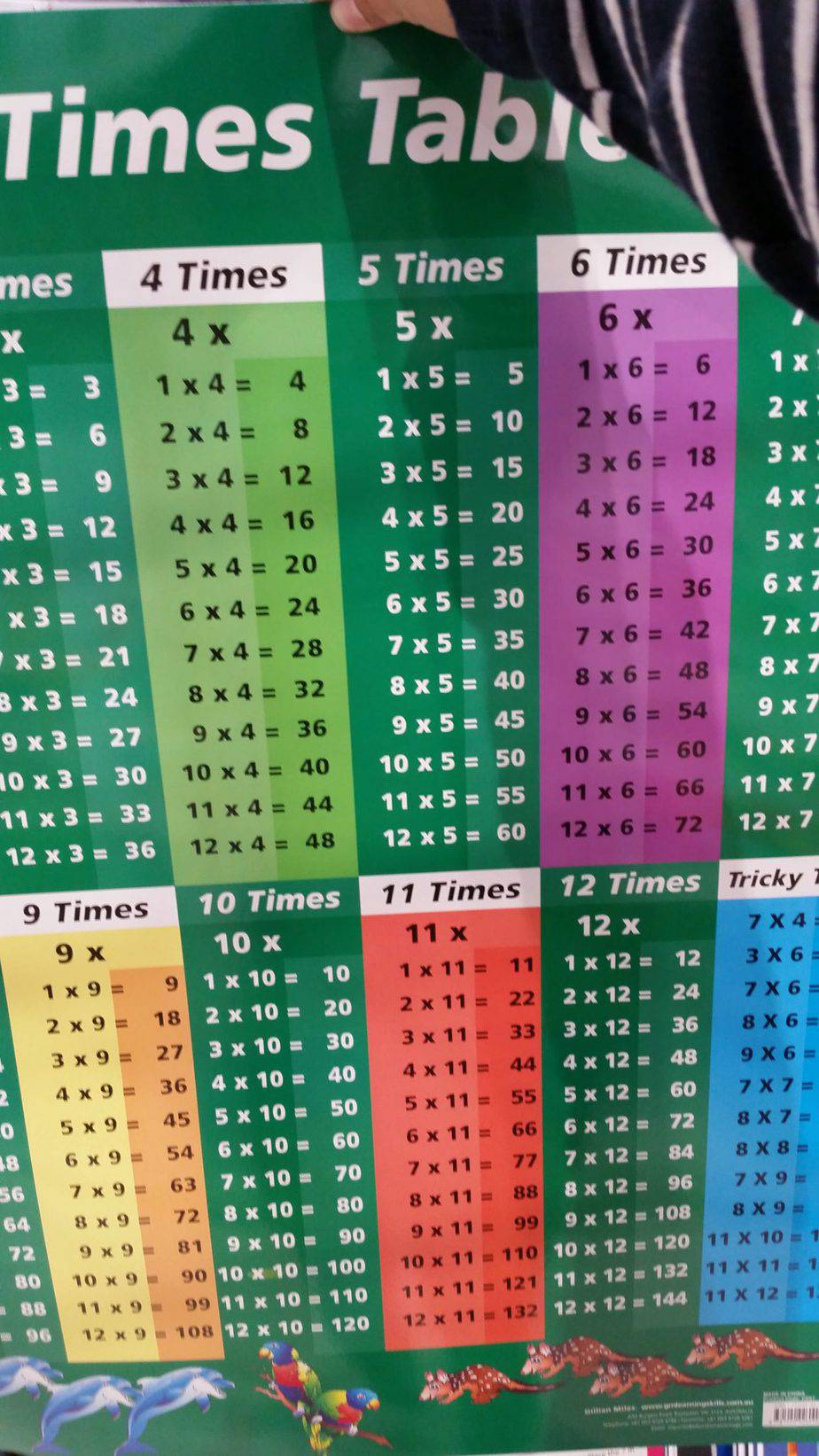
It’s also an idea to include a world map or a map of your local country. I found this one of Australia in our local store.
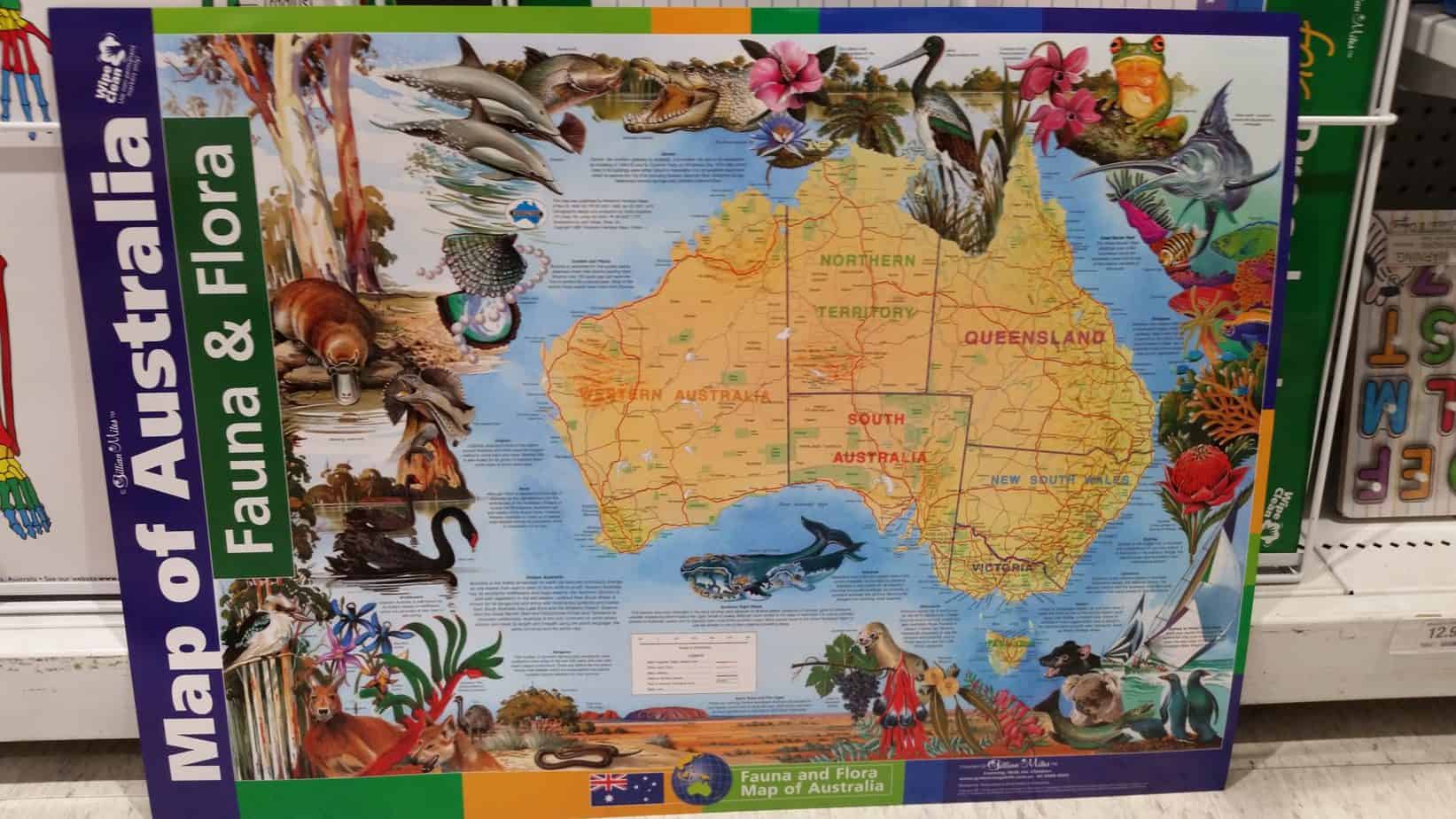
Given phonics is the best way to learn grammar, a phonics graphic like the one below might be appropriate in your homeschool room.
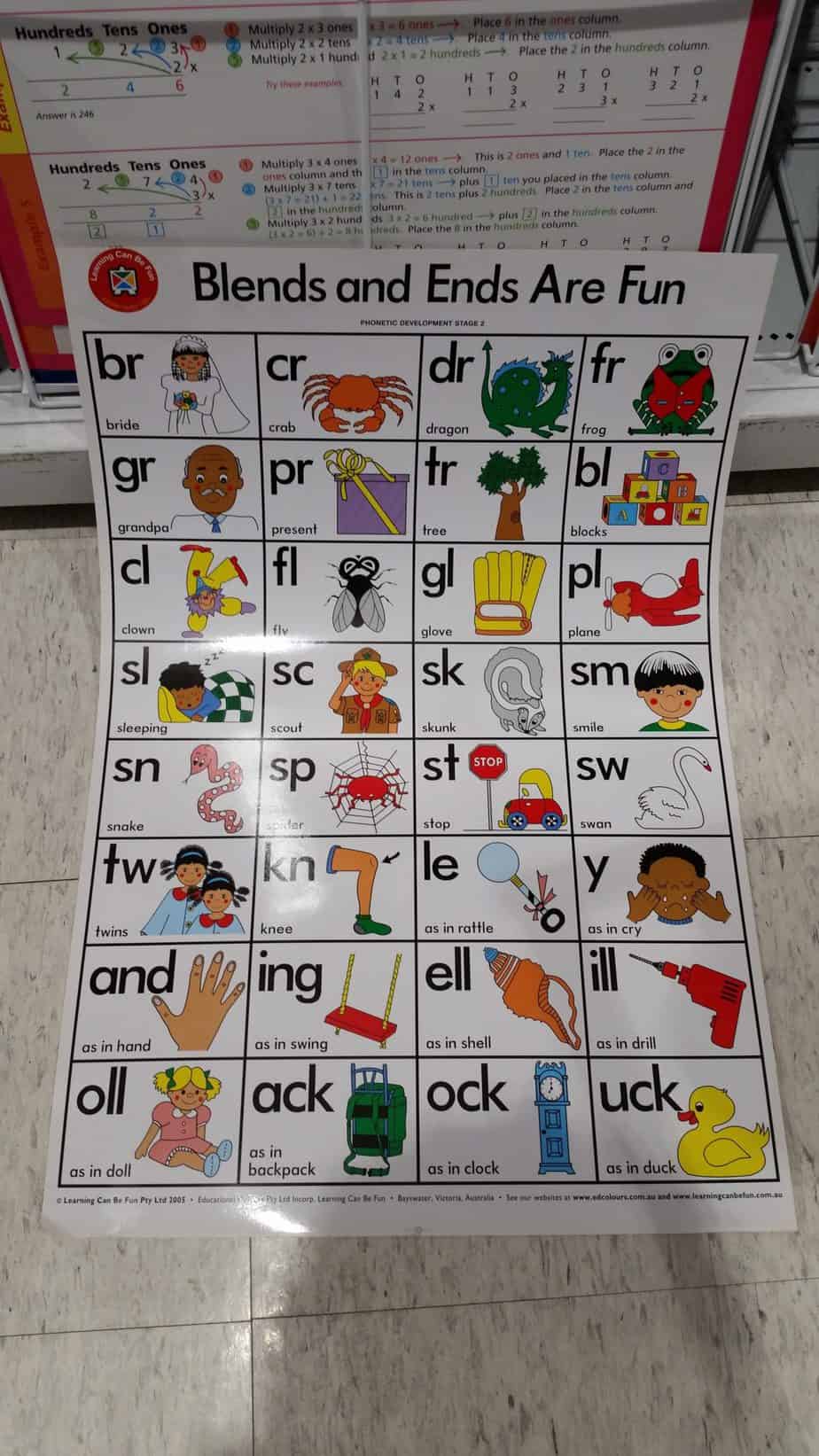
A poster of the human body might also inspire your home learners to learn about anatomy and physiology.
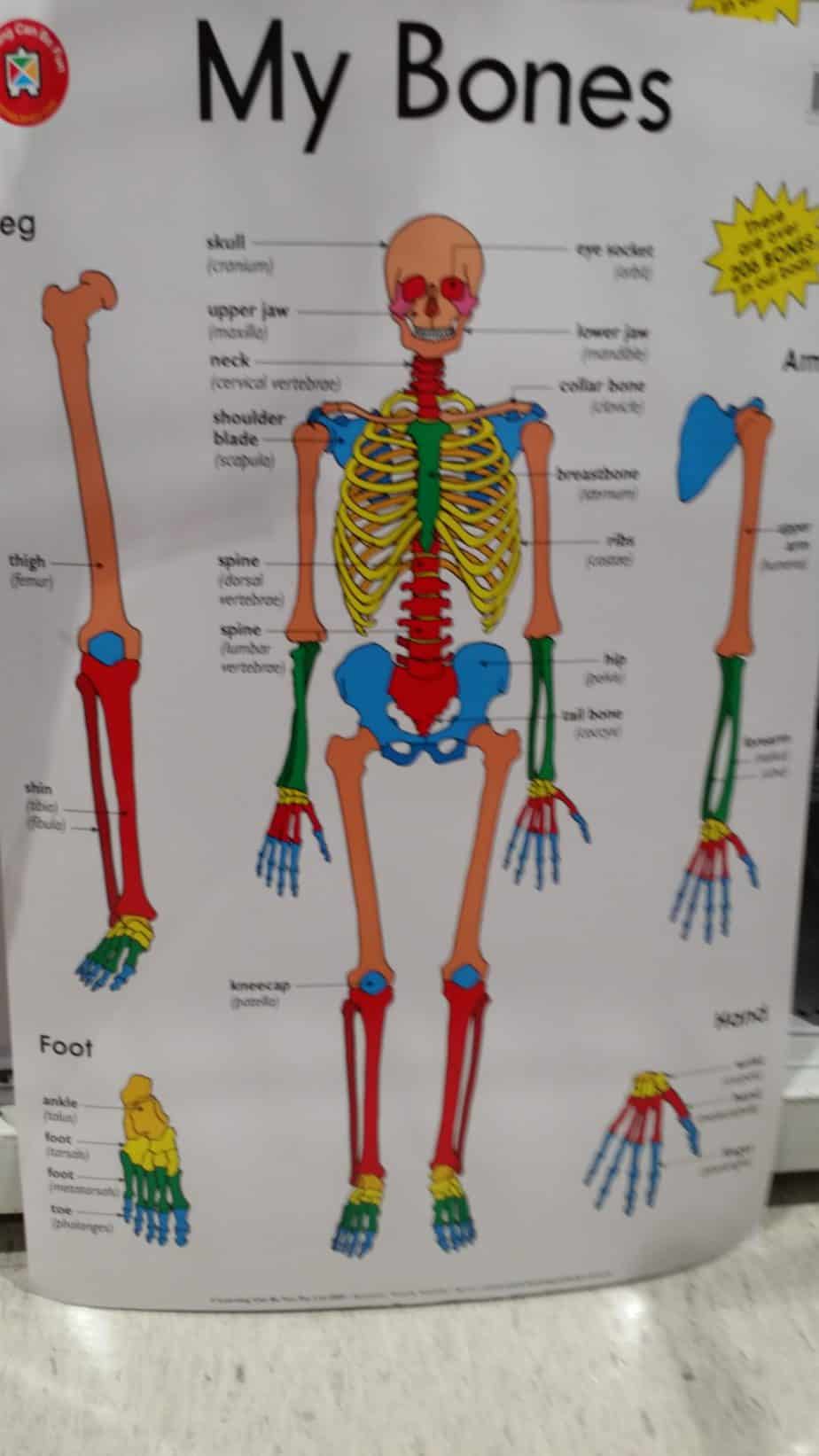
There are many options available as you can see in the pictures below. Also, check out the Amazon box below that has different options, relevant to the country you live in.
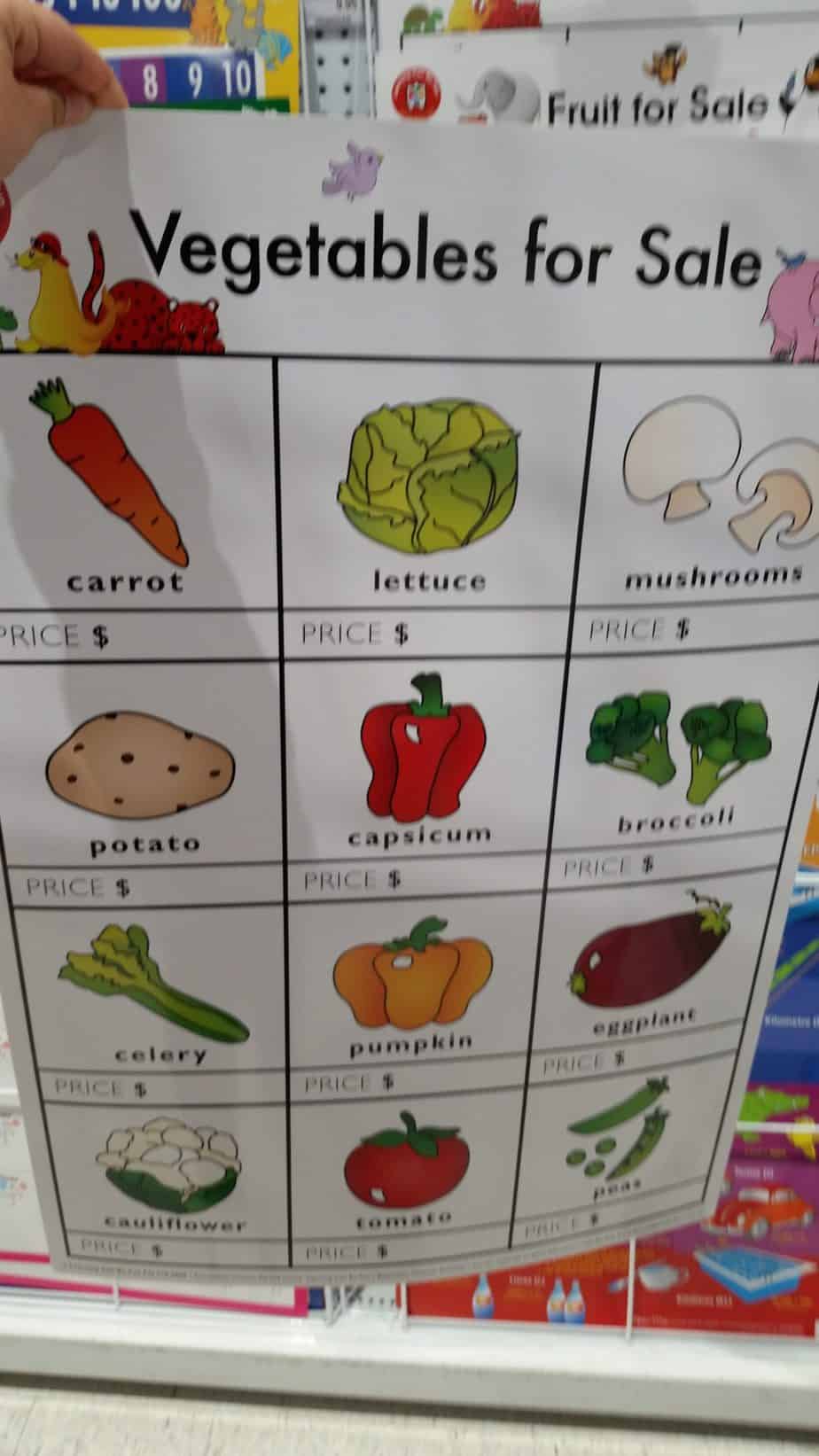

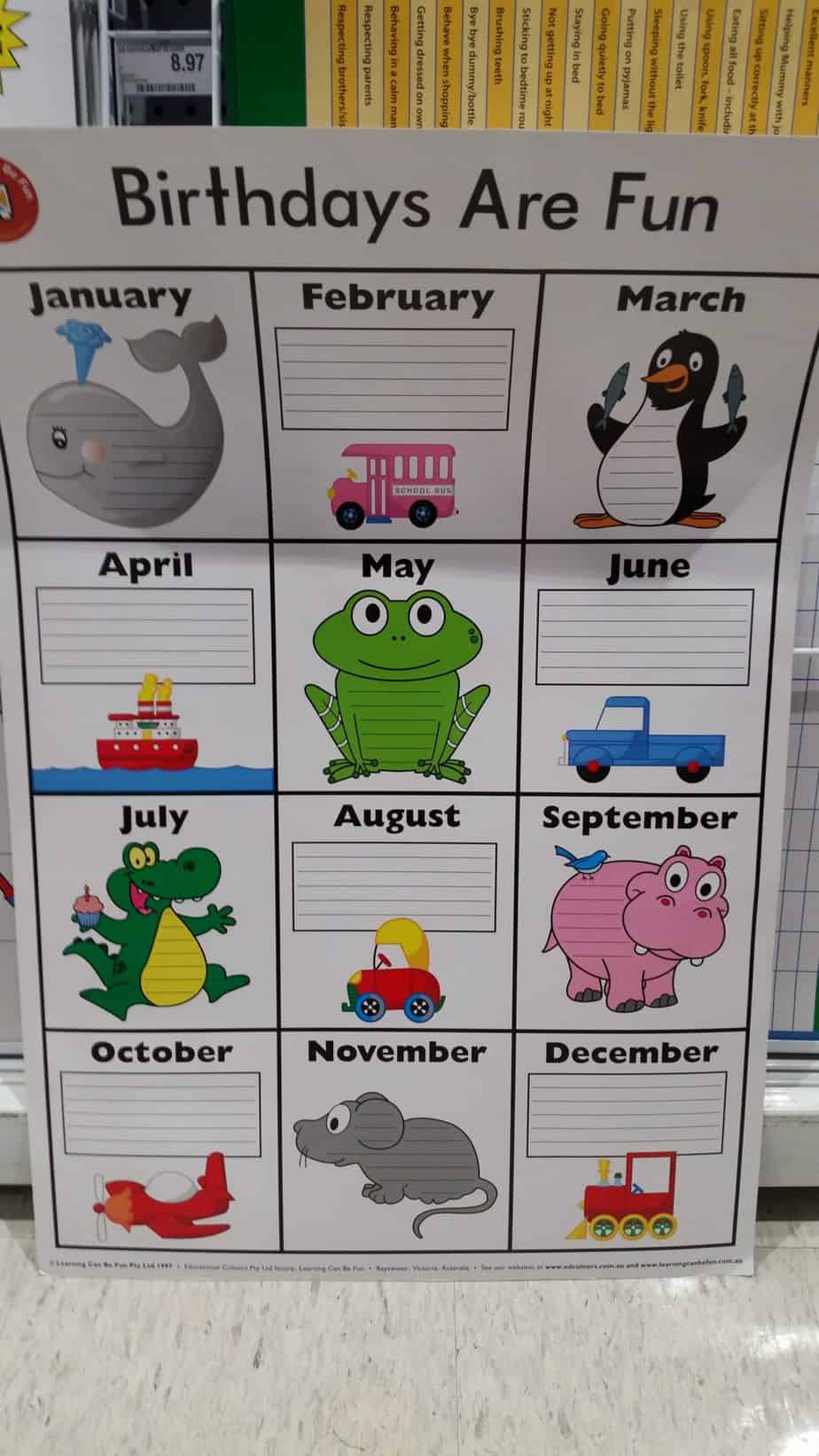
Bible Verses on the Walls
As a Christian, I love being surrounded by encouraging words of hope and love. Bible verses remind me of my purpose in life and inspire me to live the way Jesus wants me to live. For this reason, I’ll be putting a few Bible verses on the walls of my homeschool room. These are some of the ones I did myself:
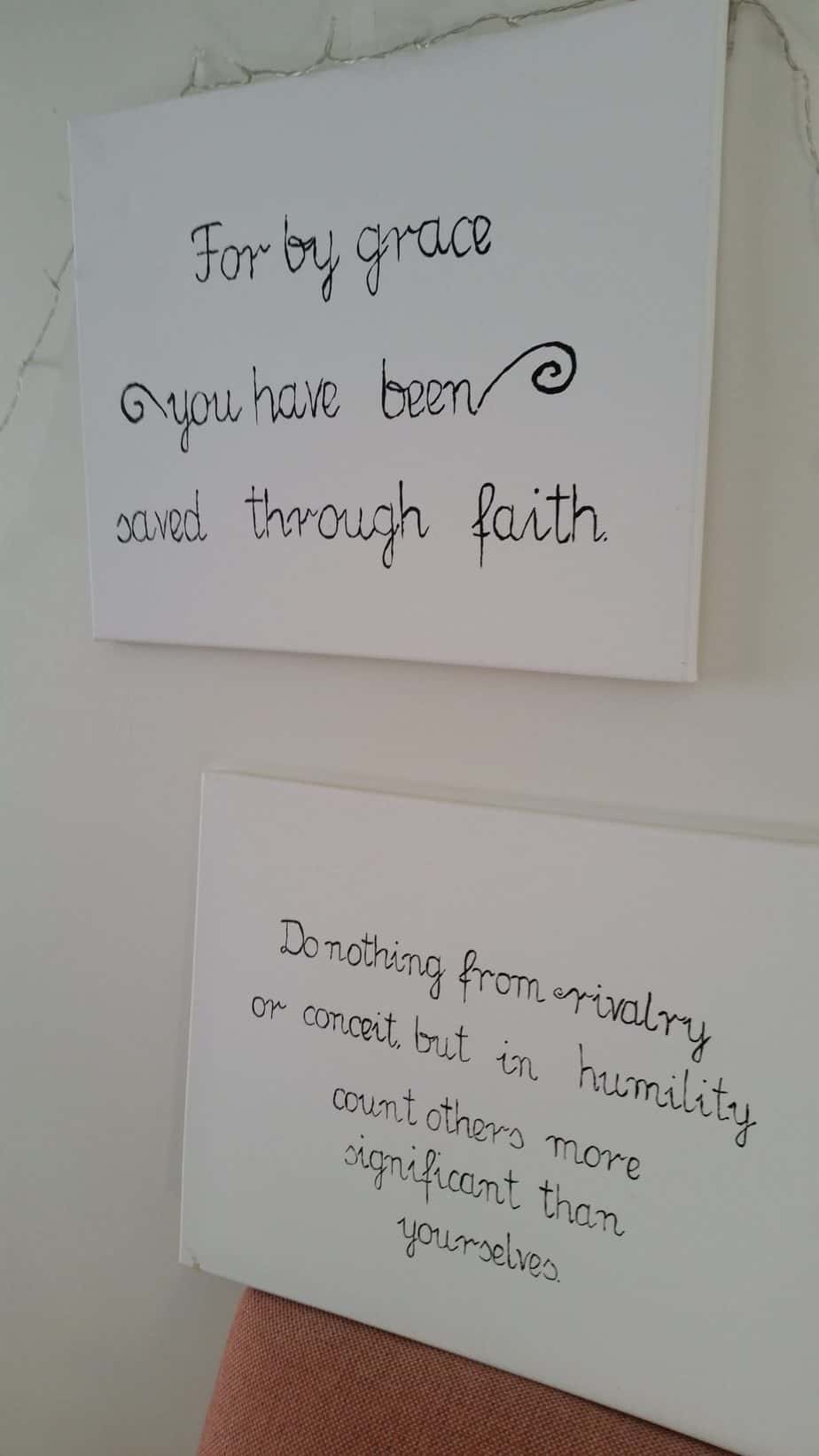
You could also put up some quirky artwork. This is one I put up and I love (though my husband isn’t a fan…):
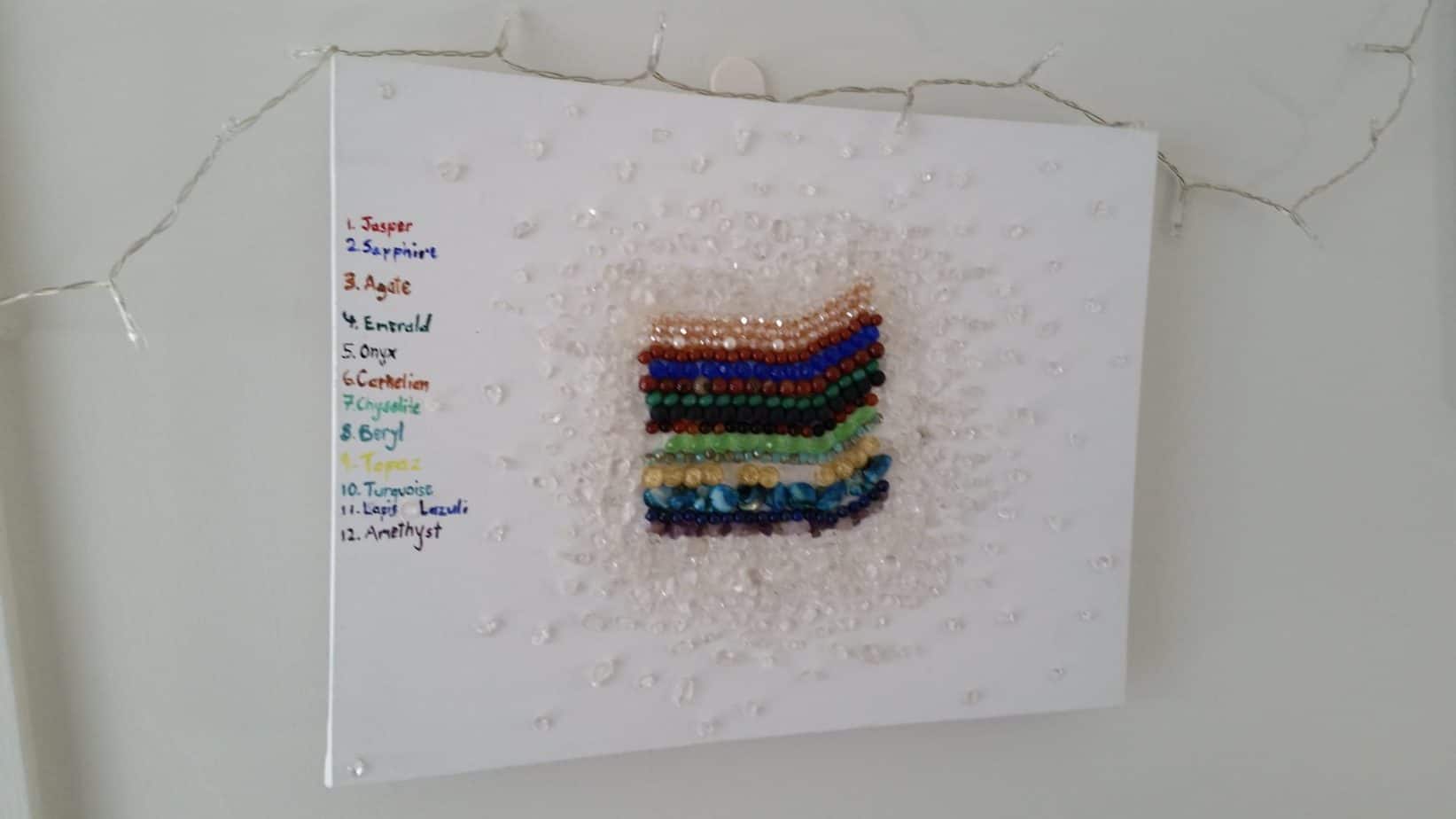
6. Blackboard or Whiteboard
If you love organization, you’ll be wanting either a blackboard or a whiteboard. Whiteboards are good for illustrating your points and storing information in visually obvious places (such as the daily tasks or memory verses). I was surprised that you could purchase these at fairly cheap prices.
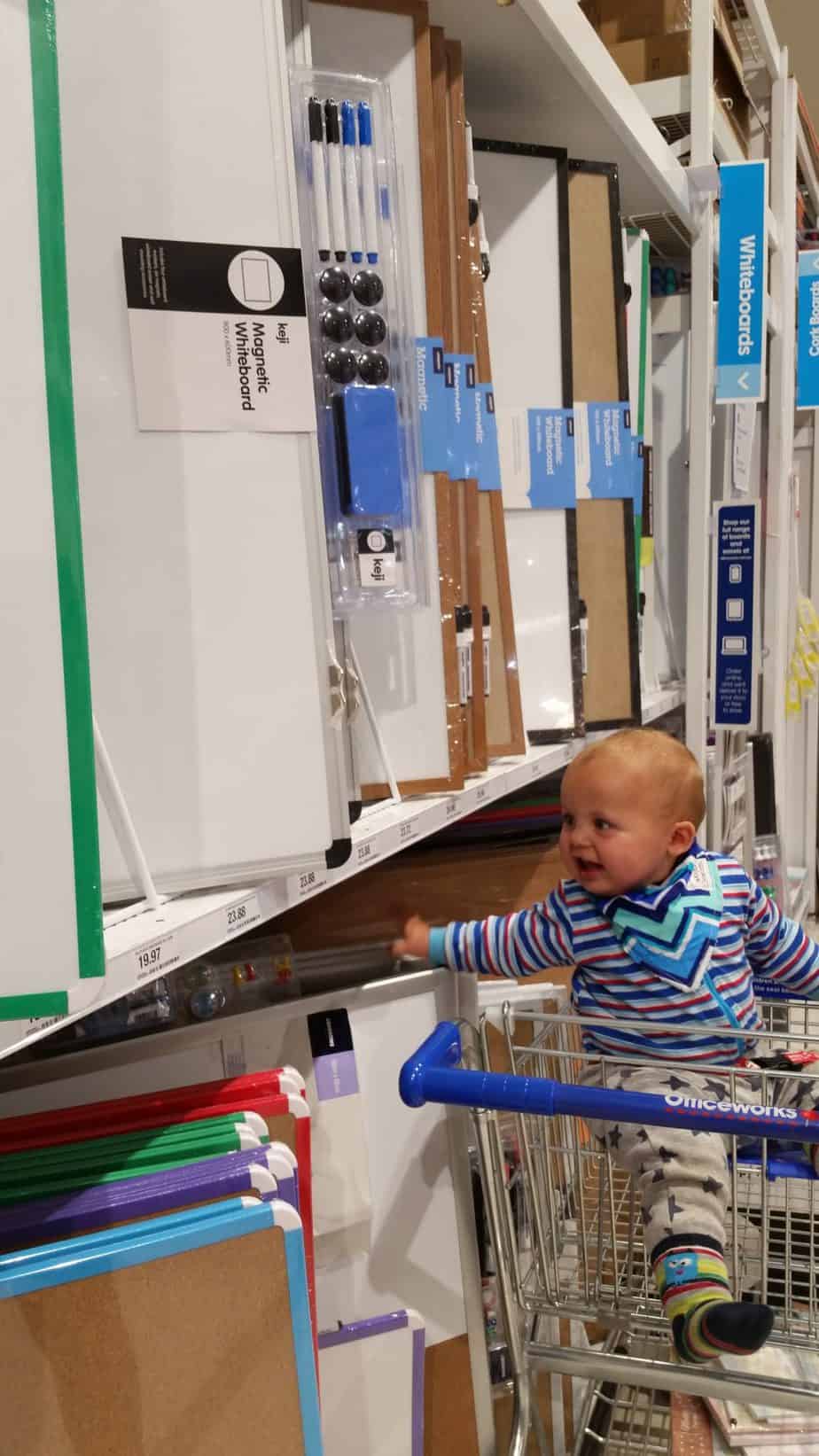
Homeschool planners also help parents organize their time effectively. I found the annual calendar below and thought it would be useful to mark when assignments are due or tasks need to be completed.
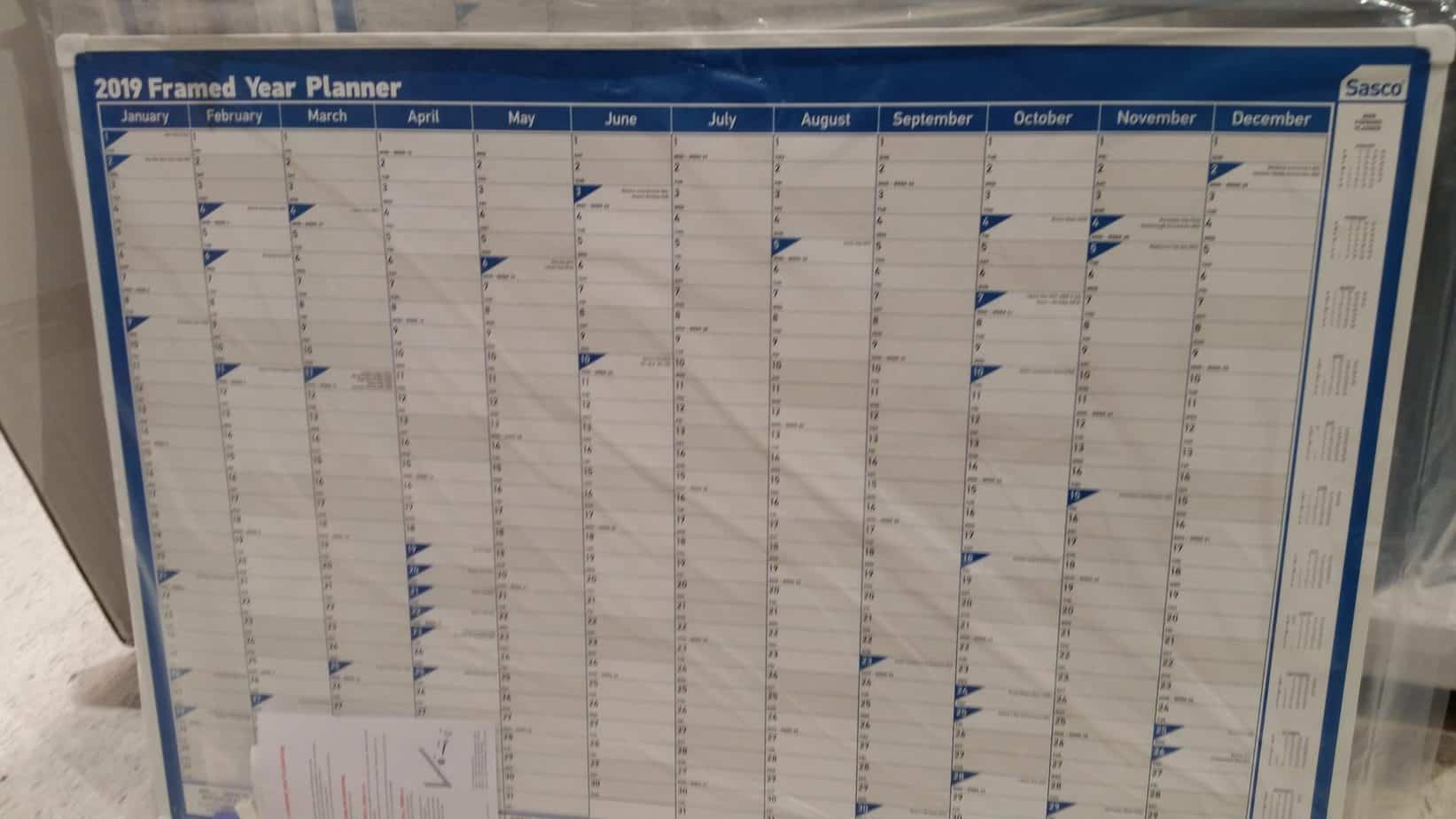
But, if you don’t want to have your plans up on the board for everyone to see, you might prefer a paper-based journal planner like the one below.
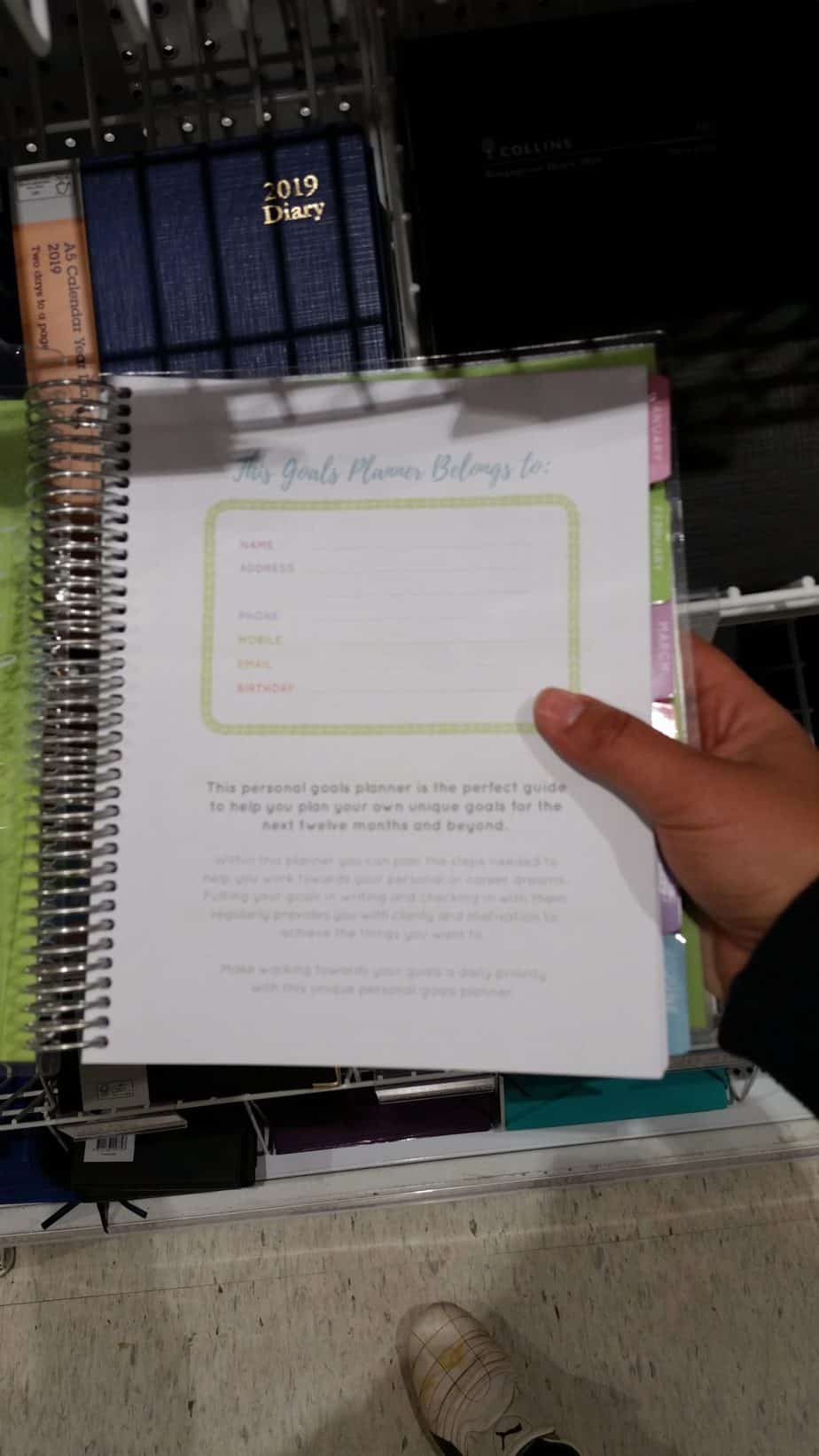
7. Homeschool Room Decorating Ideas
Other than classroom pictures and wall hangings, how else can you decorate your homeschool room?
Lamps make a great addition to the schoolroom as they can help make a cosy and enticing spot to study at night. This is especially relevant to high-school-aged students who will tend to study more at night when their brains are still active.
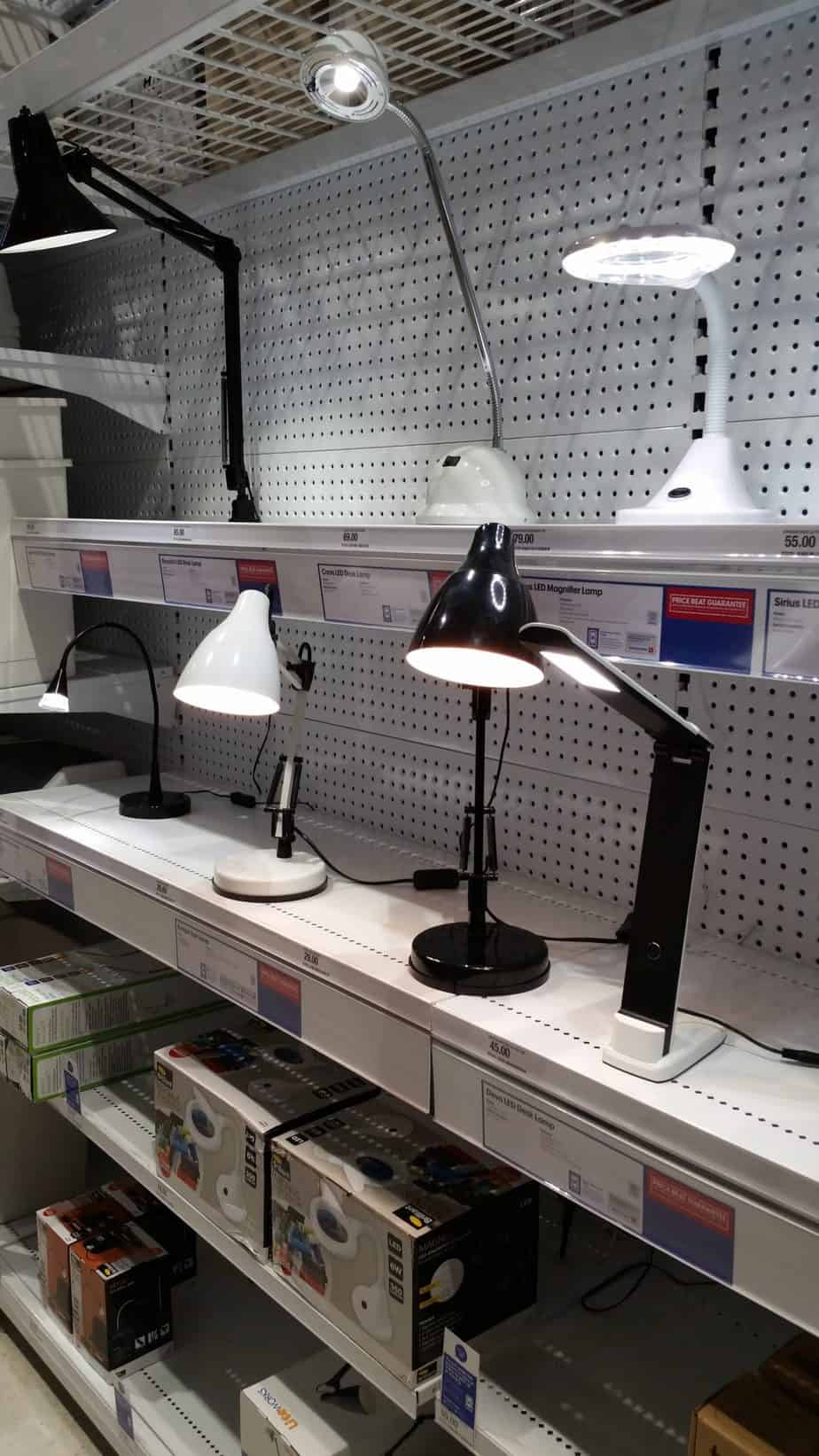
A book nook almost makes your homeschoolers want to read piles of books. It’s a great place for home learners to retire as they do independent family reading time or read a chapter of the History textbook. Pick a nice spot by the window and add some fluffy cushions. If you don’t have the right setup for a book nook, a beanbag under the window can suffice to make a comfy warm spot for homeschoolers to park themselves.
A moveable pull-along cabinet on wheels lets you follow the sun around the house. Overly hot or cold environments can make concentration hard, so having the option to take advantage of the sun can help home educated students be more motivated. Store all your bits and bobs in your moveable cabinet and enjoy the sun wherever you sit.
If your children love pets, an aquarium or mouse cage might be just the thing for your homeschool room. Put an aquarium or mouse cage in the corner to keep your homeschoolers company while they study.
8. Additions to Organize Your Homeschool Room
Storage containers are an essential item if you want to maintain order in the room. They don’t have to be housed in your homeschool room, but this is useful so you can drop your child’s homework in the box after they’ve finished and think about sorting it out another day.
9. Montessori Home Setup
If you love the Montessori method, you’ll be wanting to incorporate a Montessori style homeschool room. You want to make the area visually attractive and sturdy, using ‘real’ materials where you can (no plastic items). The American Montessori Society says:
Throughout the room, children will be sorting, stacking, and manipulating all sorts of beautiful objects made of a range of materials and textures. Many of these objects will be made of smooth polished wood. Others are made of enameled metal, wicker, and fabric. Also available to explore are items from nature, such as seashells and birds’ nests.
Don’t cram shelves until they’re overflowing. Make things sparse, so children can easily focus on specific objects. In a Montessori homeschool room, it’s okay to get breakable things as children learn from their mistakes and learn to value what can be broken.
What materials are in a Montessori Classroom?
While you need to be age-sensitive, these are some of the things in a Montessori classroom:
- a kid-sized table and chairs (as in the pictures further up in this post)
- lots of wooden sensory objects
- stackable objects and materials of different sorts
- alphabetized or numbered objects to learn literacy and numeracy
- seashells, or other collections from a nature walk
- gardening tool set or sand-digging tools
- a real kids toolset with metal tools (age-sensitive)
- cleaning gear (broom & mop)
- cooking utensils
- wooden puzzle sets, tumble tower and board games
- specimen blocks for flora and fauna
- world map
- mini world flag stands
- (outside) trampoline
- art easel and
- hand puppets.
There are many things you could get for a Montessori classroom. You’ll have to pick your or your children’s favorites or choose age-appropriate items you think they will learn best using. You can see this link for a complete list of Montessori materials.
10. Setup a Small Homeschool Room
If you’re about to start homeschooling in a small space and you only have limited options, you can easily make it work. For example, dining room tables make great substitutes for homeschooling rooms. Many parents don’t even have schoolrooms and instead, home learners do all their work on the floor, sofa, or balcony. Some ideas for small homeschooling rooms or small educational spaces include:
- instead of wall-to-wall bookcases, consider getting a Kindle for your books. As your kids get older and devour more books, you might be grateful you don’t have 100 books for fifth graders when your teenager is graduating.
- instead of keeping and storing…why not chuck! The freedom of living with no clutter is exhilarating. Google ‘stuff I should throw out in my house’ for ideas where you can minimalize your ‘stuff’.
- for some homeschool organization ideas for small spaces, look at a store that specializes in small spaces. Even if you can’t afford to buy the stuff, you can DIY some solutions for a small homeschool space.
- use the great outdoors as your classroom. Spending a lot of time outdoors is a great idea anyway, and you have all the more reason to do it if you have a small homeschool space!
- when you think about how small your homeschool room is, think about the fact that you’re actually probably incredibly wealthy compared to most people in the world (if you’re in a Western country, you’re probably in the top 2% of wealthy people in the world!). Showing your kids you are happy with less is also a way of modeling humility to your homeschoolers.
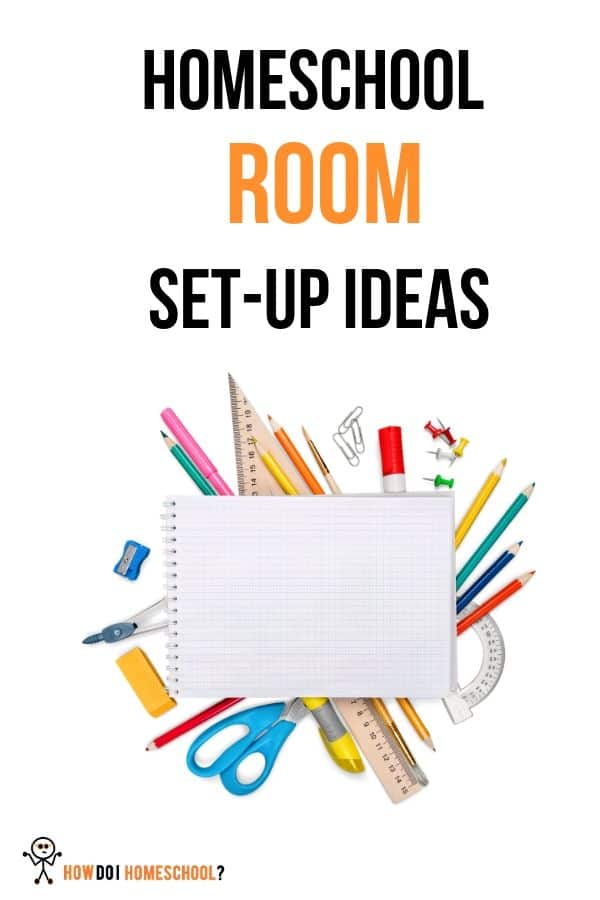
Conclusion
Having a great homeschool room setup will help you to organize your thoughts and put you ahead of the game by having material, resources, and supplies you need ready for your family’s educational journey. Many parents can more clearly when they have things organized and in their right spot. This article helps you stay organized and adds a bit of fun to your day when you’re creating your schoolroom at home.
The post 10 Cool Homeschool Room Setup Ideas & Supplies You Need appeared first on How Do I Homeschool.


